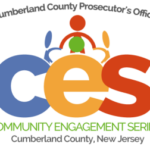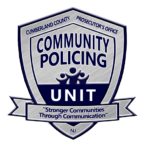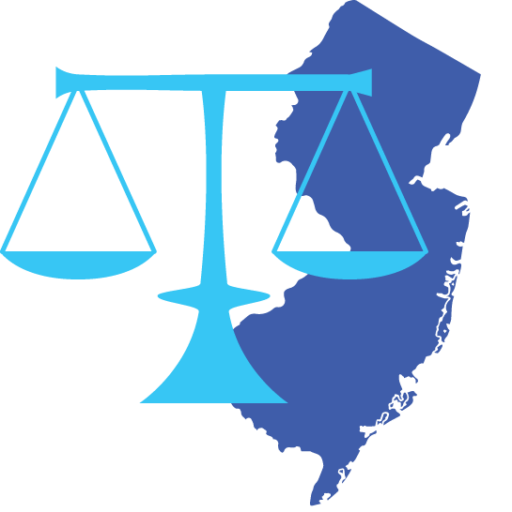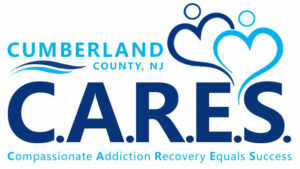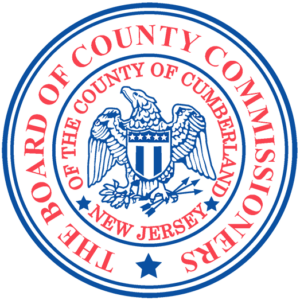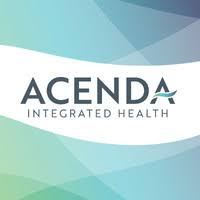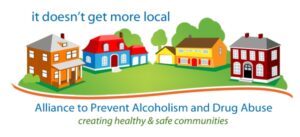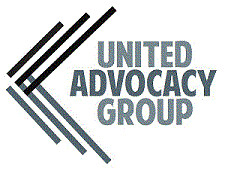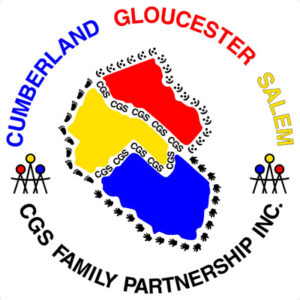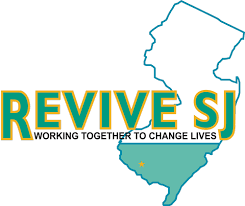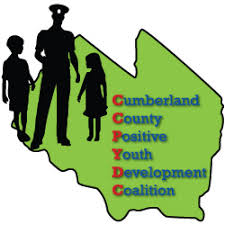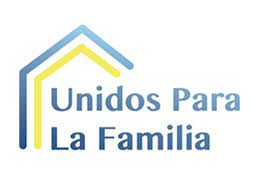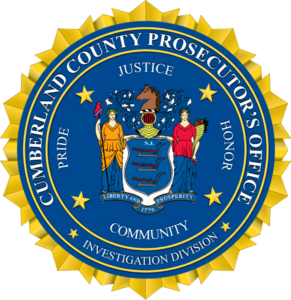CUMBERLAND COUNTY
About Us
Youth Services Advisory Council
The Youth Services Commission continues to be the comprehensive planning entity for local youth, as part of New Jersey’s Juvenile Reform Bills signed into law in December of 1995. Youth Services Commissions were established by law to plan and implement strategies, and to advocate to reduce juvenile delinquency and improve the juvenile justice system. County youth services commissions are also designated to administer the State / Community Partnership Grant Program. In Cumberland County, this Commission is known as Youth Services Advisory Council (YSAC).
Cumberland County Youth Services Commission 2021 Open Public Meeting Dates
Date: | Time: | Location: |
Wednesday, January 20th | 3:00pm | |
Wednesday, February 17th | 3:00pm | |
Wednesday, March 17th | 3:00pm | |
Wednesday, April 21st | 3:00pm | |
Wednesday, May 19th | 3:00pm | |
Wednesday, June 23rd | 3:00pm | |
Wednesday, July 21st | 3:00pm | |
Wednesday, August 18th | 3:00pm | |
Wednesday, September 15th | 3:00pm | |
Wednesday, October 20th | 3:00pm | |
Wednesday, November 17th | 3:00pm | |
Wednesday, December 15th | 3:00pm |
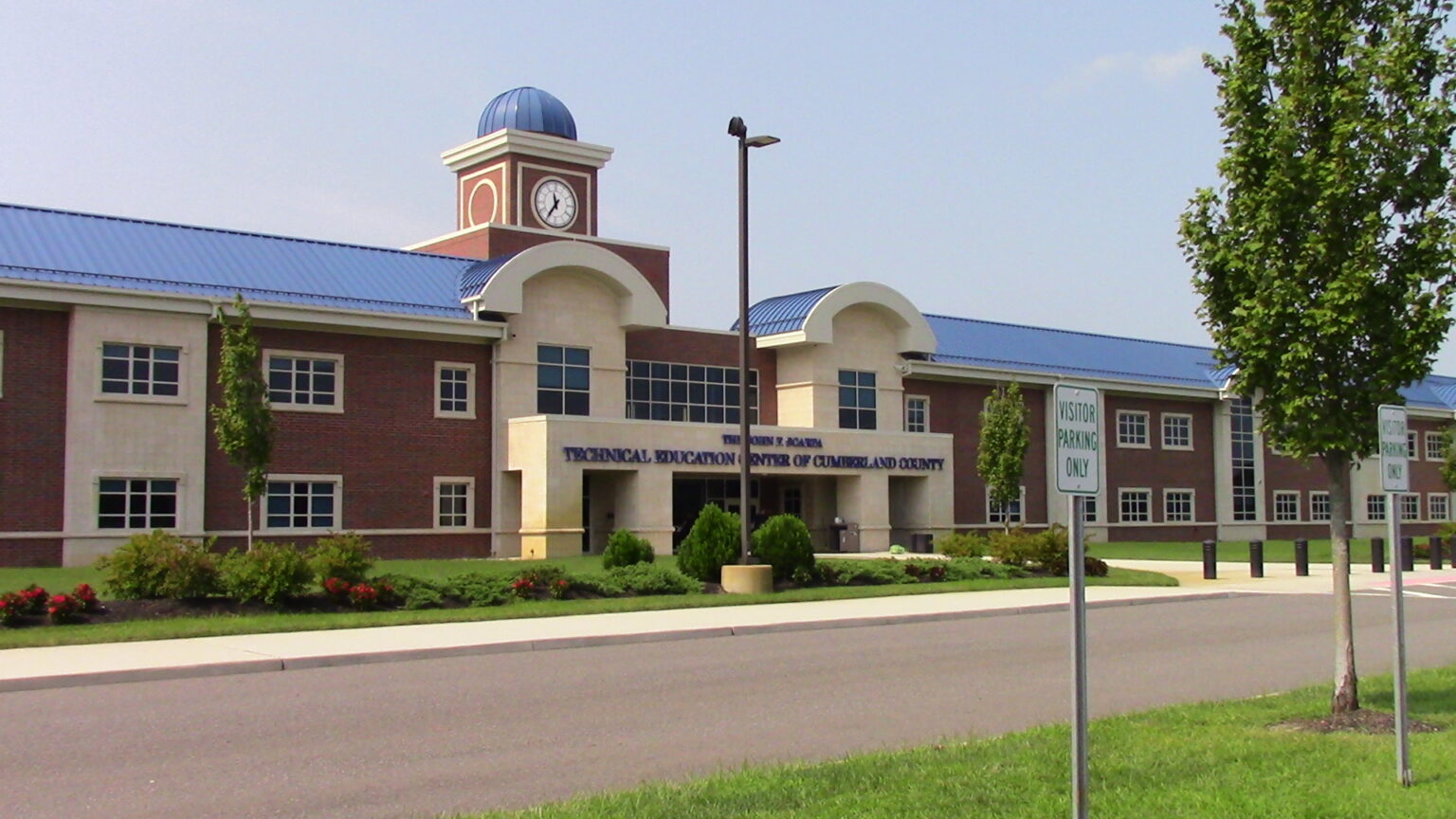
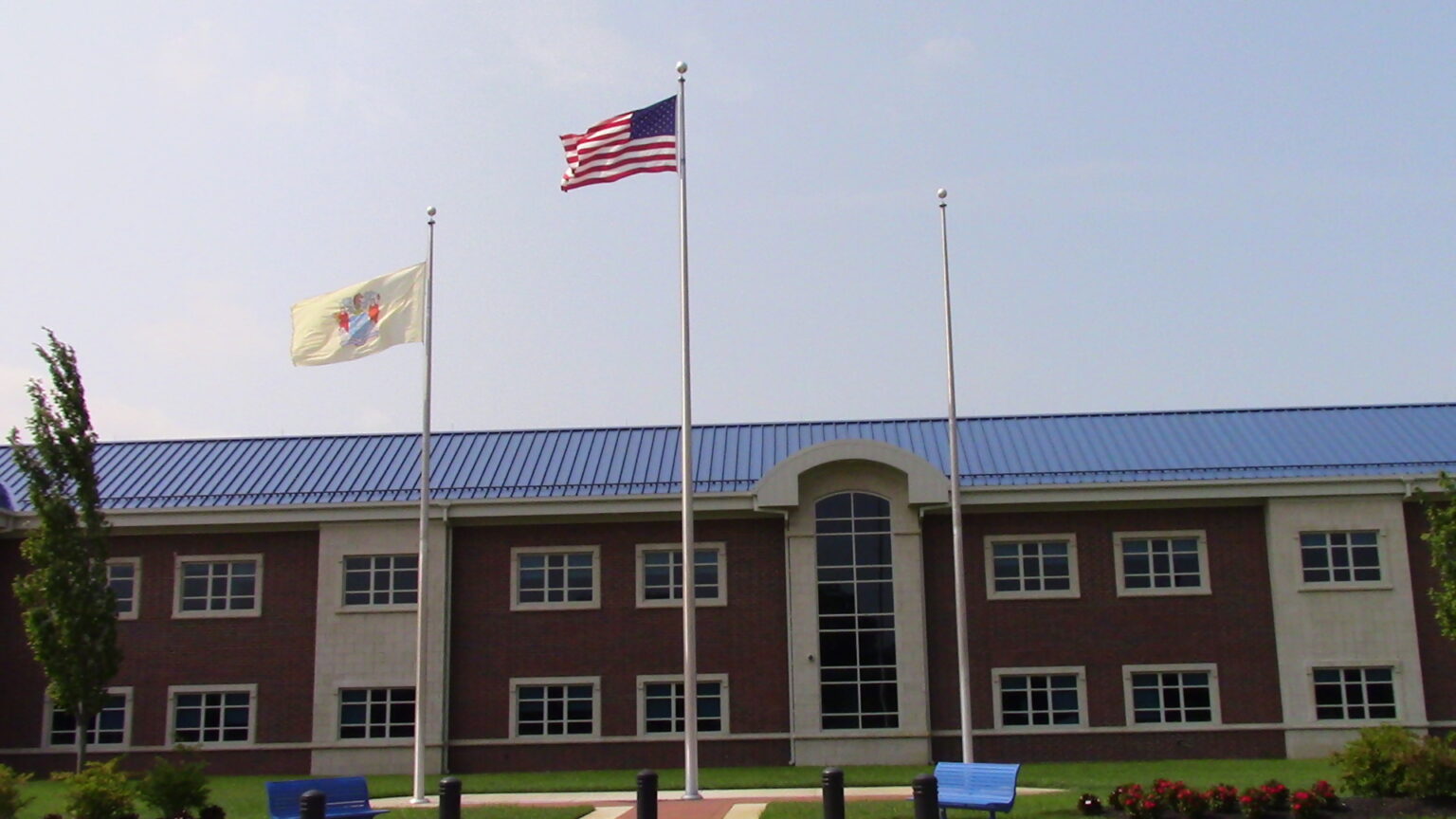


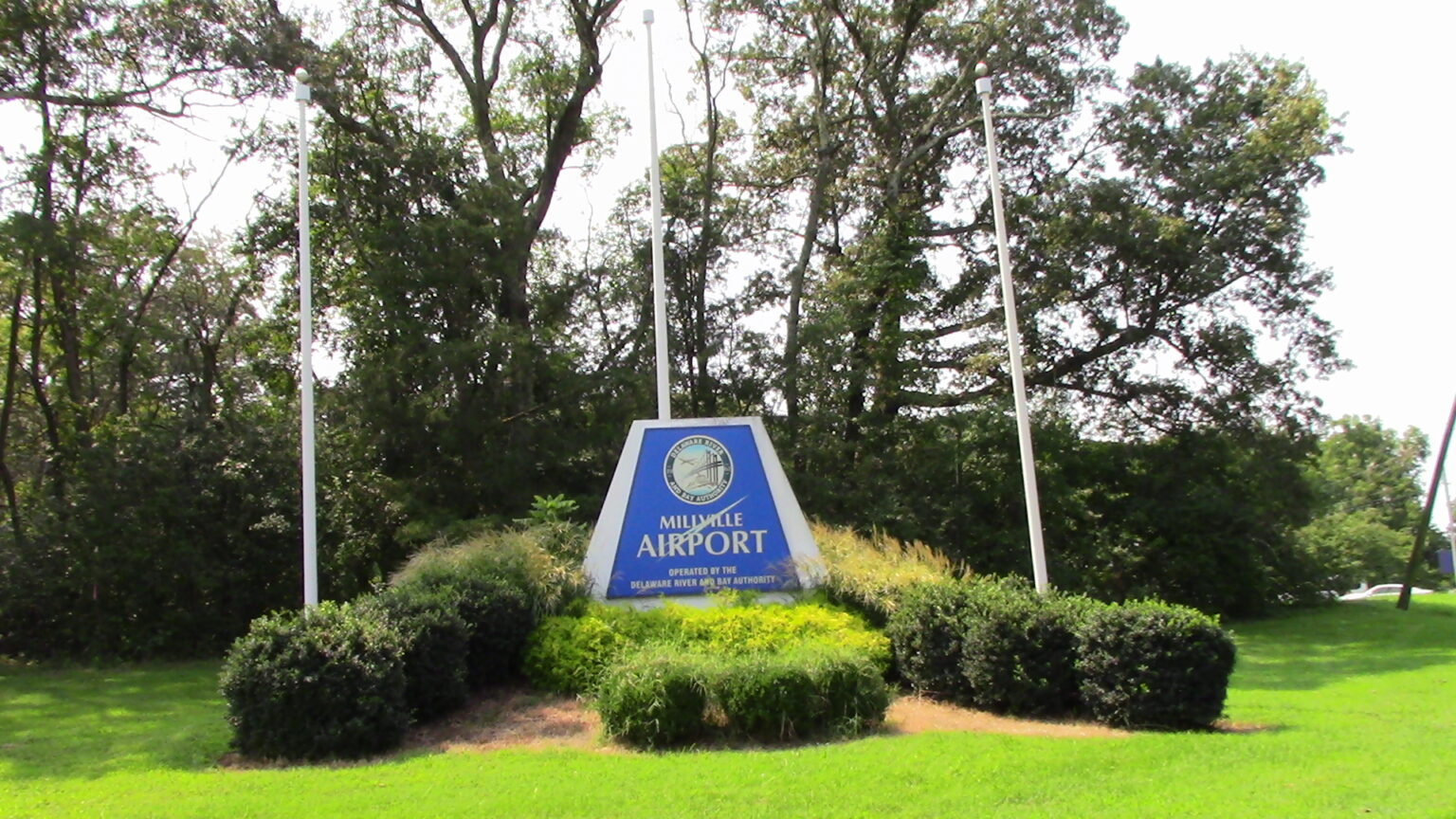



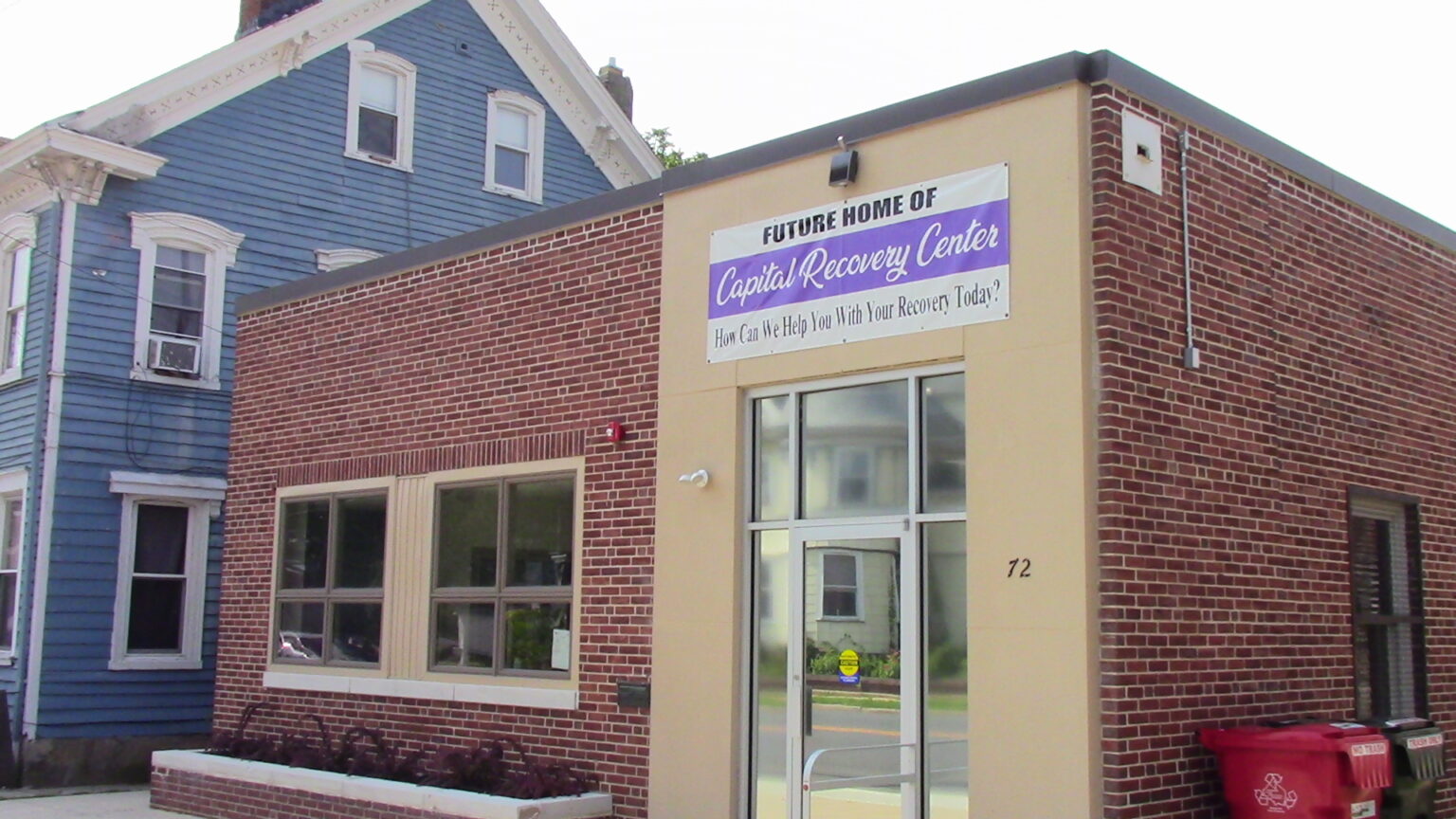
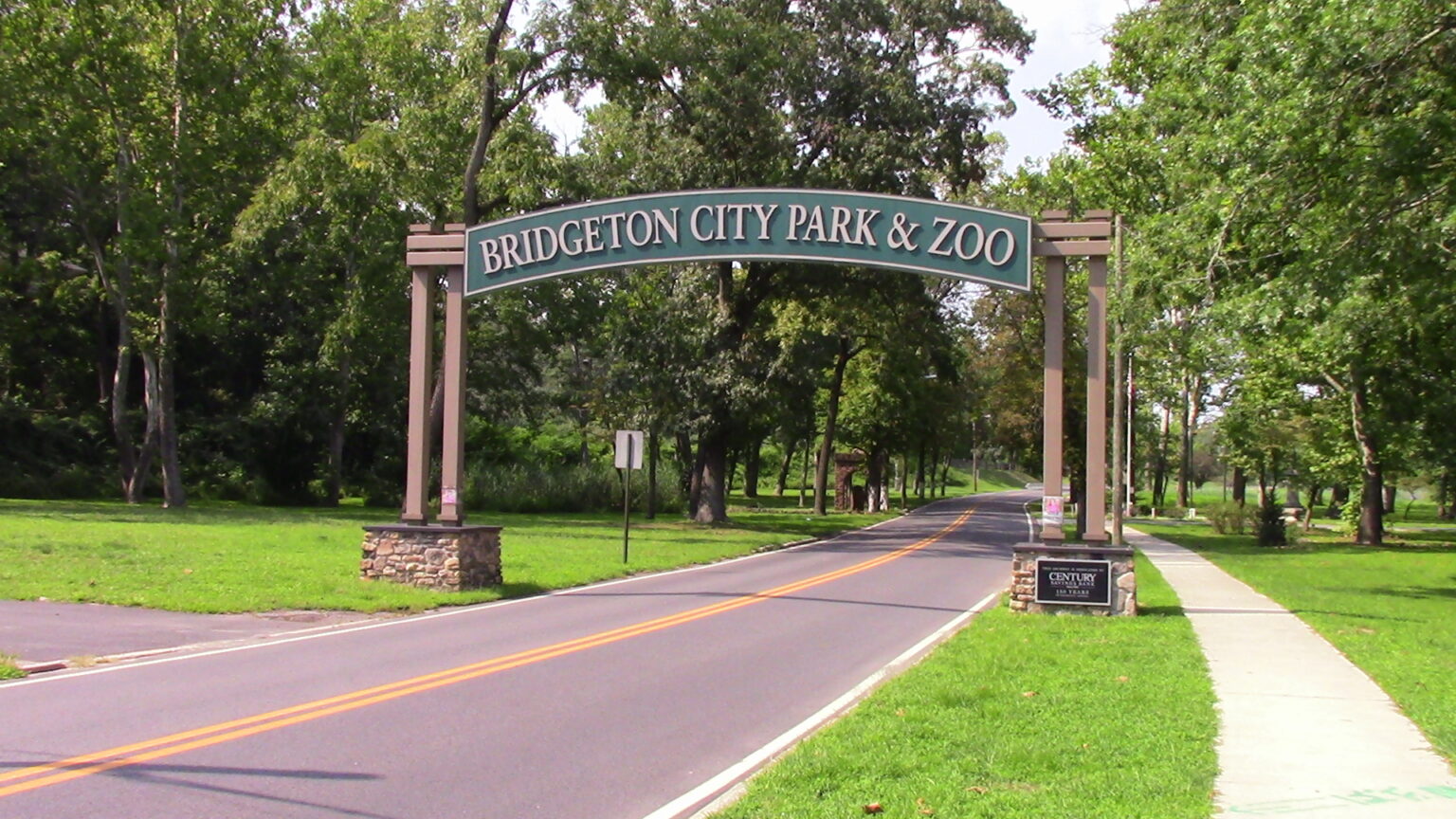
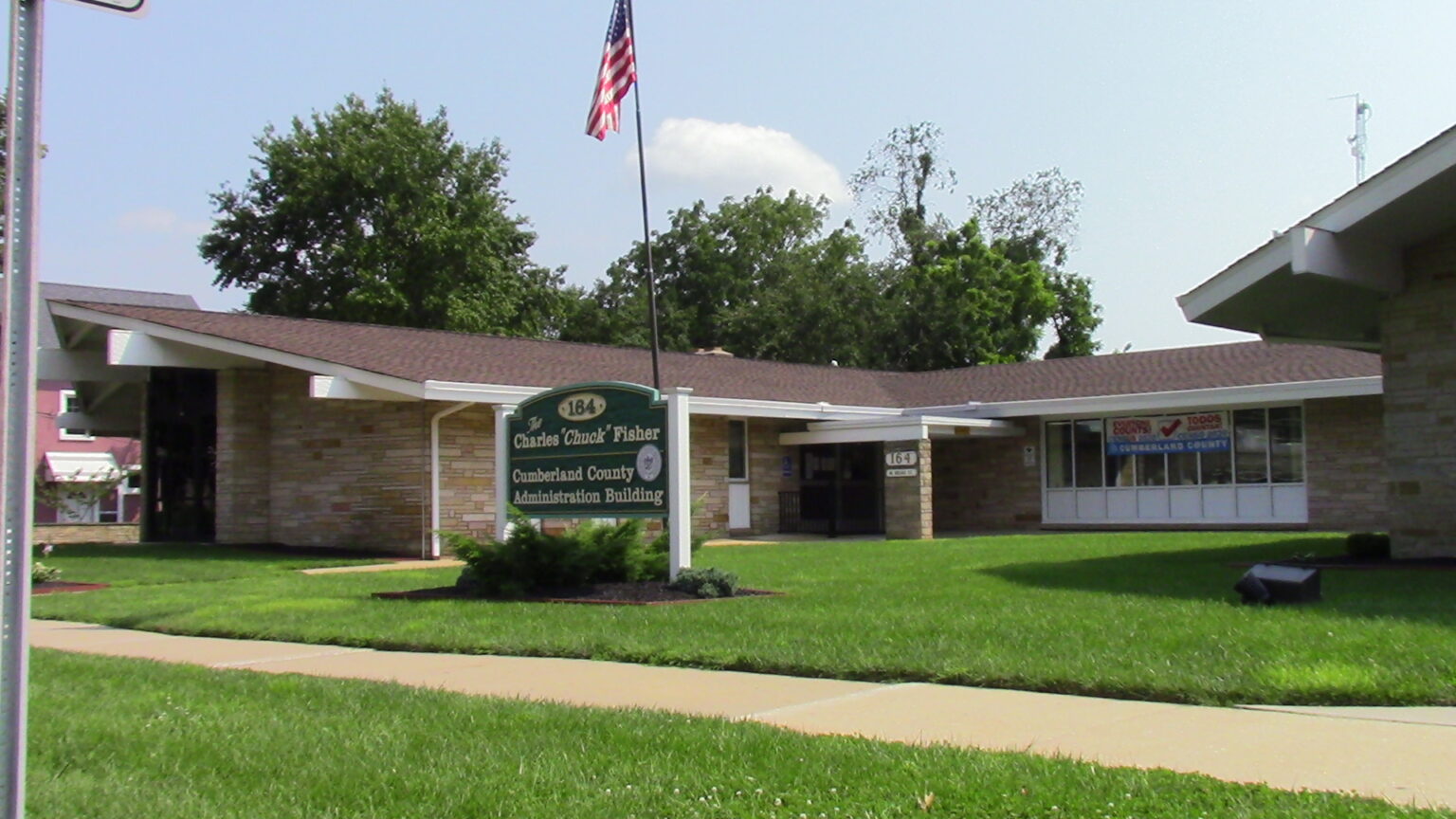

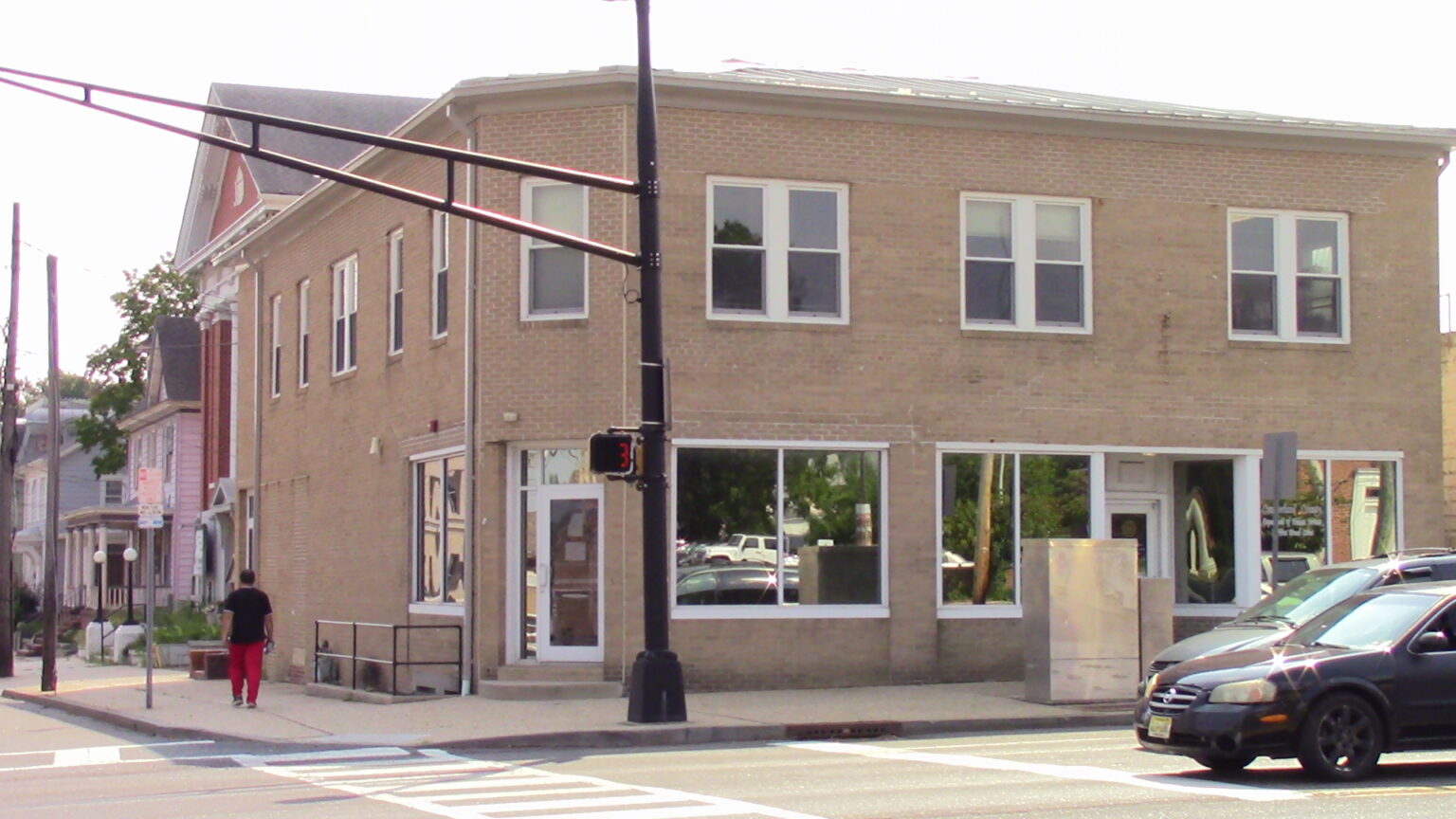

Contact Us

Frank Carozza
Youth Services Commission Administrator
Children’s Inter-Agency Council Coordinator
Cumberland County
Department of Human Services
70 West Broad Street, Bridgeton NJ 08302
Phone: 856.459.3083
Fax: 856.455.5756
Email: [email protected]
Your Voice Matters To Our Youth...
Please Join Us In Discussion and Help Make a Difference.
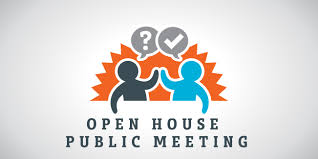

Chatting with Cumberland Wants Your Feedback!
We want to know what speaks to you. Find out more, listen to our episodes, and join us on our social media and Discord server by clicking the links below:
Youth Services Advisory Council Comprehensive Plan Archive
This section is currently under construction and will be available soon!
Youth Services Advisory Council Virtual Meeting Recordings Archive
“In compliance with the Open Public Meetings Act, Chapter 231, Public Law 1975, this meeting of the Youth Services Advisory Council transmitted notice of this meeting to the South Jersey Times, the Daily Journal, SNJ Today, The Guide, The Reminder and The Press of Atlantic City. A notice was also posted on the Cumberland County homepage on the internet in compliance with this Act”. (The Open Public Meetings Act)
Click On The Dates Below To Access Information
Meeting canceled due to COVID-19.
Meeting canceled due to COVID-19.
Cumberland County Youth Services Advisory Council Meeting Agenda
Wednesday, May 20th, 2020- 3:00 PM
Via Zoom- Click Here To Play Meeting Recording
Attendees: Kevin Guinan (CCPO),Amber Smith (SODAT), Frank Carozza (DHS), Rick Ortiz, Juwanna V (GLSEN SNJ), Erin Klein (Acenda), Justin Caruso (Acenda), Pat Baitinger (CC Probation), Mark Anderson (CCPO), Mike Reginell (SWC), Jason Chessman (CCPO), Melissa Niles (DHS), Safiya Baker (JJC), Gina Blevins (JJC), Christine Graves (MRSS), Spencer Young (JJC), Veronica Ramos (CFS), Jaime Gomez (WFD), Shane’t Bowe (CCFC), Ron Hudak (CGS-CMO), Lisa Felix (DCPP), Mary Ann Hamidy (YAP), Eddie May (DCPP), Veronica Surrency (CC Det.), Chris Volker (Boys and Girls Club).
I. Welcome and
Introductions – Eddie May/Kevin Guinan
II. Review and Approval of
Minutes – February 19th, 2020.
*Motion to Approve Minutes: Jaime Gomez
2nd: Justin Caruso
All in Favor
Abstention: Juwanna V.
III. Presentation(s): None
IV. Reports: Click Here To View Provider’s Reports
· Freeholder Report – Jack Surrency / Jim Quinn
· JJC Liaison Report – Spencer Young
· Administrator’s
Report – Frank Carozza
– 1st Quarter Fiscal Review, CY 2020 Monitoring Update, CY 2021 JDAI/Comprehensive Plan Update
V. Old / New Business-
VI. Announcements-
VII. Adjournment-
*Motion to Adjourn: Jason
Chessman
Second: Pat Baitinger
Adjourned 3:49 PM
Cumberland County Youth Services Advisory Council Meeting Agenda
Wednesday, June 17th, 2020- 3:00 PM
Microsoft Teams- Click Here To View Meeting Recording
Conference ID: 722 689 668#
Attendees: Jason Chessman (CCPO), Ed May (DCPP), Pat Baitinger (CCProb), Gary Bryant (CCProb), Jack Surrency (CCFB), Mike Dindak (Ranch Hope), Devan Blackwell (CSO), Christine Graves (MRSS), Justin Caruso (Acenda), Melissa Niles (DHS), Rick Ortiz (PRAC), Frank Carozza (DHS), Spencer Young (JJC), Mike Regenelli (SWC).
I. Welcome and Introductions – Eddie May
II. Update on the Virtual Minutes Archive – Complete Meeting Record from May 20th, 2020 can now be accessed by the members and public at: https://njacysca.org/about-us/nj-counties/cumberland-county/
III. Presentation(s): None
IV. Reports: Click Here To View Provider’s Reports
- Freeholder Report – Jack Surrency / Jim Quinn
- JJC Liaison Report – Spencer Young
- Administrator’s Report – Frank Carozza
V. Old / New Business-
VI. Announcements-
VII. Adjournment-
*Motion to Adjourn:
Jason Chessman
Second: Pat Baitinger
All In Favor. Meeting ended at 3:51PM.
Cumberland County Youth Services Advisory Council Meeting Minutes
Wednesday, October 21st, 2020
Microsoft Teams- 1-856-209-3537
Conference ID: 722 689 668#
3:00 pm
Click Here to View the Meeting Recording: CCYSAC- 10-21-2020
Attendance:
Eddie May (DCPP), Beverly Dragotta (CCSD), Gary Bryant (CC Probation), Shanet Bowe (Family Court) , Julie Coward (Family Court), Mike Dindak (Ranch Hope), Devan Blackwell (CC Superintendent’s Office), Mary Ann Hamidy (YAP), Christine Graves (MRSS), Justin Caruso (Acenda), Melissa Niles (DHS), Ron Hudak (CGS-CMO), Rick Ortiz (PRAC), Spencer Young (JJC), Frank Carozza (YSAC Administrator), Amber Smith (SODAT), Veronica Surrency (CC Detention) , Mike Regenelli (Southwest Council), Jason Chessman (CCPO), Teri Black (Inspira), Christine Colon (PathStone), Shawn Claybrooks (DCPP), Joeny Mendez (CC Workforce Development), Delizah Arguello (CFS), Jocie Ortiz, Veronica Ramos-Cruz (CFS), Riccina Cabezas (UAG).
- Welcome and Introductions – Frank Carozza/Eddie May
“In compliance with the Open Public Meetings Act, Chapter 231, Public Law 1975, this meeting of the Youth Services Advisory Council transmitted notice of this meeting to the South Jersey Times, the Daily Journal, SNJ Today, The Guide, The Reminder and The Press of Atlantic City. A notice was also posted on the Cumberland County homepage on the internet in compliance with this Act”. (The Open Public Meetings Act)
- Presentation(s): None
III. Review and Approval of Minutes (9-16-2020) and Email Budget Modification Vote Affirmation (10-16-20)
- *Motion: Gary Bryant made a motion to approve the September 16th, 2020 minutes, Beverly Dragotta seconded. The minutes were approved with all in favor.
III. Roll Call Vote to Approve Budget Modification:
Vendor | Program | Change +/- | Date of Budget Review |
|
|
|
|
PRAC | School Violence Prevention |
-10,000.00 | 10-6-20 |
WFD/Wawa | Summer Youth Employment | +3,602.89 | 9/30/20 |
YAP | Diversion Mentoring | +20,000.00 | 10/1/20 |
YAP | Disposition Mentoring | +10,000.00 | 10/1/20 |
YAP | In Home Detention | No Change | 10/1/20 |
YAP | Diversion In-Home Counseling | No Change | 10/1/20 |
Acenda | Disposition-IHC |
-15,000.00
| 10/2/20 |
Acenda | Cognitive Skills |
-4,000.00 | 10/2/20 |
First Step Clinic | Disposition- Drug and Alcohol Treatment |
-3,045.89 | 10-8-20 |
First Step Clinic | Diversion- Drug and Alcohol Treatment | No Change | 10-8-20 |
CFS | Sex Offender Treatment | No Change | 10/5/20 |
Client-Specific Funds | DHS |
-1,557.00 | 10/6/20 |
Budget Mod II Email Vote Tracker- Completed 10/16/20
Voting Member | Aye | Nay | Abstain |
|
|
|
|
Shane’t Bowe | X |
|
|
Mary Ann Hamidy |
|
| X |
Justin Caruso |
|
| X |
Edgar May | X |
|
|
Veronica Surrency | X |
|
|
Jason Chessman | X |
|
|
Devan Blackwell | X |
|
|
Michelle Slaney-Mills | X |
|
|
Christine Graves | X |
|
|
Pat Baitinger | X |
|
|
Mike Regenelli | X |
|
|
Lisa Felix | X |
|
|
The Cumberland County Virtual Minutes Archive –
Complete meeting schedules, recordings, minutes, plans, and current events from January 2020 can now be accessed by YSAC members and the general public at: https://njacysca.org/about-us/nj-counties/cumberland-county/
- Reports:
- Freeholder Report – Jack Surrency / Jim Quinn
No Report.
- JJC Liaison Report – Spencer Young
Spencer encouraged the YSAC to volunteer
- Administrator’s Report – Frank Carozza
- The 2020-21 Comprehensive Plan has been submitted and pending review from the JJC for final submission.
- CY 2021 YSAC RFP’s have been released- All submissions are due on November 20th, 2020 at 2:30 PM. There will be a non-mandatory virtual pre-bid conference on Tuesday, October 27th. Reviews and scoresheets recommendations are due to purchasing by December 8th.
- Monitoring Schedule Has been released and vendors have been sent invitations, a copy of the monitoring tool, and all guidelines on what to expect.
- Vendor JAMS reports should be submitted to Frank for approval before 10/30/20.
- Superintendent’s Report – Devan Blackwell
· Devan began by noting that the office of county education is the liaison between Trenton and the Department of education. They have 15 districts and four charter schools and serve about 24,000 students. Fairfield school district is the only one in Cumberland that has delayed its in-person opening. Currently virtual support groups are in planning and will be announced when available to support learning spaces in the home for students.
· Youth-TIP (Trauma Informed Protocol) is currently being utilized from the CCPO’s office. This intervention protocol will be utilized to identify and notify teachers of traumatic incidences that youth may have may have exposed to while out of school. Vineland district rolled this out on October 1st, and it will continue to roll out County wide.
- Provider Reports:
- Cumberland County Department of Workforce and Economic Development:
Summer Youth Employment Program (Prevention Category)
– Michelle Slaney-Mills
See attached report.
- PRAC of Southern New Jersey:
Violence Prevention Program (Prevention Category)
– Rick Ortiz
See attached report.
- Youth Advocate Programs:
Individual Mentoring Program (Diversion Category / Disposition Category) – Mary Ann Hamidy
In-Home Counseling Program (Diversion Category)
– Mary Ann Hamidy
In-Home Detention Alternative Program (Detention Category)
– Mary Ann Hamidy
See attached reports.
- Acenda:
In-Home Counseling Program (Disposition Category)
– Justin Caruso
Cognitive Skills Program (Disposition Category)
– Justin Caruso
See attached reports.
- Cumberland County Alcohol and Drug Abuse Treatment Services: Adolescent Drug and Alcohol Treatment Services Program (Diversion Category / Disposition Category)
– Melissa Niles
- Center for Family Services:
Sex Offender Services Program (Disposition Category)
– Veronica Ramos-Cruz
No report at this time.
- SODAT of New Jersey:
Probation Enrichment & Transportation Program (JDAI)
– Amber Smith
See attached report.
- Ranch Hope:
Shelter Program (Human Services)
– Mike Dindak
See attached report.
- Old / New Business-
None
- Announcements–
Christine Colon made an announcement
VII. Adjournment-
Eddie May made a motion to adjourn the meeting. Gary Bryant seconded with all in favor. The meeting was adjourned at 4:10 PM.
The next meeting will be held on November 18th, 2020, at 3:00PM via MS Teams
Respectfully Submitted,
Frank Carozza, Cumberland County Youth Services Administrator
2020 Youth Services Commission Meeting Schedule
Wednesday, November 18th | 3:00pm | |
Wednesday, December 16th | 3:00pm |
CY 2021 Youth Services Commission Meeting Schedule
Date: | Time: | Location: |
Wednesday, January 20th | 3:00pm | |
Wednesday, February 17th | 3:00pm | |
Wednesday, March 17th
| 3:00pm | |
Wednesday, April 21st
| 3:00pm | |
Wednesday, May 19th
| 3:00pm | |
|
|
|
Wednesday, June 23rd
| 3:00pm | |
Wednesday, July 21st | 3:00pm | |
Wednesday, August 18th | 3:00pm | |
Wednesday, September 15th | 3:00pm | |
Wednesday, October 20th | 3:00pm | |
Wednesday, November 17th | 3:00pm | |
Wednesday, December 15th | 3:00pm |
Youth Services Advisory Council Provider Report
- Provider / Program Name: Acenda ; Cognitive Life Skills
- Month Reporting: September 2020
- What is your current level of service? 6
- How many referrals have you received this month? N/A
- How many juveniles entered your program this month? N/A
- How many juveniles completed your program this month? N/A
- What is your contract award? $20,000
- How much funding has your program spent so far this program year? $11,288.44
- What is your current funding balance? $8,711.56
- Has your program experienced any barriers to implementing services? The program has been utilizing virtual workshops via Zoom without any connectivity issues.
- Do you have any program highlights to share? Clients are still participating and on target to graduate in mid-October.
XII. How has COVID-19 affected your programming? Teleconferencing; Community
Service & Graduation
XIII. How many total youth have you served since January 1, 2020, Year To Date? 20
- Provider / Program Name: Acenda / Connect Two (In-Home Disposition)
- Month Reporting: September 2020
- What is your current level of service? 2
- How many referrals have you received this month? 1
- How many juveniles entered your program this month? 2
- How many juveniles completed your program this month? 0
- What is your contract award? $70,000
- How much funding has your program spent so far this program year? $29,791.30
- What is your current funding balance? $40,208.70
- Has your program experienced any barriers to implementing services? The overall number of referrals being sent to the program. The Program Supervisor has been in weekly contact with the Probation Supervisor and has requested being able to attend Formal and Informal hearings to assist the Family Court in making appropriate referrals.
- Do you have any program highlights to share? Clients are still participating.
XII. How has COVID-19 affected your programming? Teleconferencing.
XIII. How many total youth have you served since January 1, 2020, YTD? 16
- Provider / Program Name: PASO
- Month Reporting: October
- What is your current level of service? 4
- How many referrals have you received this month? 0
- How many juveniles entered your program this month? 1
- How many juveniles completed your program this month? 0
- What is your contract award? $36,000
- How much funding has your program spent so far this program year? 26533.40
- What is your current funding balance? 9466.60
- Has your program experienced any barriers to implementing services? None
- Do you have any program highlights to share? None at time
XII. How has COVID-19 affected your programming? Very low referrals
XIII. How many total youth have you served since January 1st, 2020, Year To Date? 6
Youth Services Advisory Council Provider Report
- Provider / Program Name: First Step
- Month Reporting: October 2020
- What is your current level of service? Level 1 with 14 clients currently attending
- How many referrals have you received this month? (4)
- How many juveniles entered your program this month? (0)
- How many juveniles completed your program this month? (3) Negative Discharges
- What is your contract award? $46,454.11
- How much funding has your program spent so far this program year? $23,970.
- What is your current funding balance? $22,484.11
- Has your program experienced any barriers to implementing services?
Youth are not report for assessments or groups
- Do you have any program highlights to share?
Improved group attendance
XII. How has COVID-19 affected your programming?
Yes Youths parents having fear about client attending treatment at the agency due to COVID-19.
XIII. How many total youth have you served since January 1st, 2020, Year To Date? (40)
- Provider / Program Name: Youth Violence Prevention Program
- Month Reporting: 9/2020-10/2020
- What is your current level of service? 0
- How many referrals have you received this month? 0
- How many juveniles entered your program this month? 0
- How many juveniles completed your program this month? 0
- What is your contract award? $18,000.00
- How much funding has your program spent so far this program year? $0.00
- What is your current funding balance? $18,000.00
- Has your program experienced any barriers to implementing services? Yes, unable to deliver program due to COVID-19
- Do you have any program highlights to share? Hopefully starting part of the
program in with one of the schools in Cumberland Vineland or Millville.
XII. How has COVID-19 affected your programming? PRAC was not able to deliver the
Program at the Cunningham (Vineland) and Thunderbolt (Millville) Academy due
To COVID-19.
- Provider / Program Name: SODAT / PET Enrichment Program
- Month Reporting: September
- What is your current level of service? 11 kids total participated in the program in September. 5 of these students were new to the program and 6 were returning.
- How many referrals have you received this month? 5
- How many juveniles entered your program this month? 5
- How many juveniles completed your program this month? 6
- What is your contract award? $104,000
- How much funding has your program spent so far this program year? $56,601.11
- What is your current funding balance? $47,398.89
- Has your program experienced any barriers to implementing services? COVID-19
- Do you have any program highlights to share?
- We completed our 9th session Life Skills class which was Internet Safety. The Life Skills coordinator created a power point about Internet Safety and also found catfishing videos on You Tube to show the dangers of not being safe on the internet. 4 youth participated in this session.
- We also had an Art class in place of a trip via zoom. We are unable to conduct trips right now because probation is still furloughed. We had 5 youth and 4 family members attend the art class where we had the students watch a video on beginner’s painting with acrylic paint. The SODAT staff and the youth and family watched the video together, virtually, and then guided the participants on how to make the painting. If the students didn’t finish their painting in the time allotted, they took a picture of the painting and sent it via text message to the SODAT phone. Each youth received a gift card and a complete painting kit including canvases, brushes, books on painting, a sketch pad, acrylic paint, water dish, paint pallet, brush holders, and an apron for participating. All of these giveaways were hand delivered by Amber from SODAT to each individual youth’s house.
- SODAT also did a virtual college tour to the Philadelphia Academy of Fine Arts. A member of the college created a power point presentation of the college and showed the youth the different programs they offer, the different buildings, the financial aspect of attending the school and the dorms. 4 youth and 2 family members attended this virtual tour. Each youth received a gift card for attending and the gift cards were dropped off by Amber from SODAT to each of the student’s house.
- Probation also conducted an orientation virtually which SODAT was a part of. 5 youth and 2 family members attended the orientation. Gift cards were mailed to each of the students for attending the orientation. The gift cards were mailed out.
INCENTIVES FOR MONTH OF September– 6 Level I, 8 Level II, 10 Level III
XII. How has COVID-19 affected your programming? SODAT has gone completely virtual due to COVID and it makes the activities and life skills more time consuming because we have to do each student individually via zoom and we also have to drop all the supplies off to each student. Activities can sometimes take up to 3 or 4 days to complete.
We are still are awarding gift card incentives and either mailing them to the youth or using the SODAT vehicle to personally drop them off.
XIII. How many total youth have you served since January 1st, 2020, Year To Date?
Total – We’ve served 40 out of the 45 individual students (unduplicated) we have active via life skills, orientation, incentives and college tours, and trips, since January. Many of these students have participated in numerous aspects of the program.
- Provider / Program Name: Cumberland County Department of Workforce Development Center
- Month Reporting: October 2020
- What is your current level of service?
- How many referrals have you received this month? 0
- How many juveniles entered your program this month? 0
- How many juveniles completed your program this month?
- What is your contract award? 31,250
- How much funding has your program spent so far this program year? 31,250
- What is your current funding balance? $ 0 . We requested additional funds in total of $ 3,602.89 to cover extra hours for a job coaching
- Has your program experienced any barriers to implementing services? None
- Do you have any program highlights to share? The program ended on 09/27/2020. The positive terminations were due to the following reasons; found employment closer to home or at a local Wawa store, relocated, leaving for college, went back to HS. The negative terminations were due to personal issues, no call, no show and terminated from the program.
Even though this program looked and felt a lot different this year due to the pandemic, everyone involved made it successful. Wawa transferred 78 youth to work at local stores and 11 alternates who work at least 4 hours per month. Job Coaches will continue offering coaching services until December 31st to help students, who have been hired locally, transition to their inland stores.
XII. How has COVID-19 affected your programming? The safety guidelines were a challenge in the beginning. Also ensuring youth were remaining safe while on the bus and in the store. Wawa staff, job coaching, Sheppard bus company and workforce development staff all worked together to come up with a solid plan of action
XIII. How many total youths have you served since January 1st, 2020, Year to Date? 126
Youth Services Advisory Council Provider Report October 2020
- Provider / Program Name: In Home Counseling
- Month Reporting: September 2020
- What is your current level of service 16
- How many referrals have you received this month 3
- How many juveniles entered your program this month 3
- How many juveniles completed your program this month
- What is your contract award? $ 45,000.00 plus additional $24,000.00=$69,000.00
- How much funding has your program spent so far this program year? $47,556.42
- What is your current funding balance? $23,443.57
- Has your program experienced any barriers to implementing services? A few clients did not want TeleHealth services.
- Do you have any program highlights to share? Not at this time.
XII. How has COVID-19 affected your programming? Increase of Youth due to loss of medical insurance benefits.
XIII. How many total youth have you served since January 1st, 2020, Year To Date? We have served 33 youth.
- Provider / Program Name: Individual Mentoring Diversion
- Month Reporting: September 2020
- What is your current level of service 4
- How many referrals have you received this month 0
- How many juveniles entered your program this month 0
- How many juveniles completed your program this month 0
- What is your contract award? $ 31,250.00
- How much funding has your program spent so far this program year? $25,116.32
- What is your current funding balance? 6,133.68
- . Has your program experienced any barriers to implementing services? A few clients did not want TeleHealth services.
- Do you have any program highlights to share? Not at this time.
XII. How has COVID-19 affected your programming? Low referrals.
- How many total youth have you served since January 1st, 2020, Year To Date? 11 youth
- Provider / Program Name: Mentoring Disposition
- What is your current level of service 2
- How many referrals have you received this month 0
- How many juveniles entered your program this month 0
- How many juveniles completed your program this month 2
- What is your contract award? $ 40,000.00
- How much funding has your program spent so far this program year? $41,682.77
- What is your current funding balance? $-1,682.77
- Has your program experienced any barriers to implementing services? No
- Do you have any program highlights to share? Ged testing, Virtual Trainings.
XII. How has COVID-19 affected your programming? Have not been affected.
XIII. How many total youth have you served since January 1st, 2020, Year To Date? We have served 19 youth.
Youth Services Advisory Council Provider Report October 2020
- Provider / Program Name: In Home Detention
- Month Reporting: September 2020
- What is your current level of service 1
- How many referrals have you received this month 0
- How many juveniles entered your program this month 0
- How many juveniles completed your program this month 0
- What is your contract award? $ 25,000.00
- How much funding has your program spent so far this program year? $15,786.01.
- What is your current funding balance? $5,059.59
- Has your program experienced any barriers to implementing services? No barriers at this time
- Do you have any program highlights to share? Youth gained full time employment
XII. How has COVID-19 affected your programming? Unable to go to youth’s home maintaining contact through phone, face time, zoom.
XIII. How many total youth have you served since January 1st, 2020, Year To Date? We have served 2 youth year to date
Cumberland County Youth Services Advisory Council Meeting Minutes
Wednesday, December 16th, 2020
Microsoft Teams- 1-856-209-3537
Conference ID: 722 689 668#
3:00 pm
Click Here to View the Meeting Recording: CCYSAC 12-16-20
Attendance:
Eddie May (DCPP), Pat Baitinger (CC Probation), Gary Bryant (CC Probation), Shanet Bowe (Family Court), Julie Coward (Family Court), Christine Graves (MRSS), Mary Ann Hamidy (YAP), Sierra Parks (CFS), Ron Hudak (CGS-CMO), Melissa Niles (DHS), Rick Ortiz (PRAC), Frank Carozza (DHS/YSAC Admin), Mike Dindak (Ranch Hope), Joeny Mendez (WFD), Timothy Andrews (WFD), Mike Regenelli (SWC), Amber Smith (SODAT), Kuan Bowleg (Community Advocate), Jenna Harvey (Community Advocate) Maria Rodriguez, Sierra Parks, Matthew Skinner (OPD), Erin Klein (Acenda), Deliza Arguello (SWC).
- Welcome and Introductions – Co-Chair Eddie May
“In compliance with the Open Public Meetings Act, Chapter 231, Public Law 1975, this meeting of the Youth Services Advisory Council transmitted notice of this meeting to the South Jersey Times, the Daily Journal, SNJ Today, The Guide, The Reminder and The Press of Atlantic City. A notice was also posted on the Cumberland County homepage on the internet in compliance with this Act”. (The Open Public Meetings Act)
- Presentation(s): None
III. Review and Approval of Minutes from 10-21-20
- *Motion: Ron Hudak made a motion to approve the September 16th, 2020 minutes, Gary Bryant seconded. The minutes were approved with all in favor.
The Cumberland County Virtual Minutes Archive –
Complete meeting schedules, recordings, minutes, plans, and current events from January 2020 can now be accessed by YSAC members and the general public at: https://njacysca.org/about-us/nj-counties/cumberland-county/
- Roll Call Vote to Approve CY2021 Allocation Modifications 1 & 2:
- Vote I: Combine The 15k intended for school-based prevention programming and reserve the funds to allocate to programs that may demonstrate an additional or unexpected influx of youth related to the pandemic- all schools will have priority on this funding should they return to session and begin programming again.
*Motion: Mike Regenelli
2nd: Michelle Slaney-Mills
Voting Member | Aye | Nay | Abstain |
Shane’t Bowe | X | ||
Mary Ann Hamidy | X | ||
Devan Blackwell | X | ||
Michelle Slaney-Mills | X | ||
Christine Graves | X | ||
Pat Baitinger | X | ||
Mike Regenelli | X | ||
Mike Dindak | X | ||
Rick Ortiz | X | ||
Julie Coward | X | ||
Ron Hudak | X | ||
Gary Bryant | X | ||
Melissa Niles | X |
- Vote II: Fund Chatting With Cumberland Podcast Project through (5K) in 1/3rd set-aside SCP funding.
*Motion: Mike Regenelli
2nd: Michelle Slaney-Mills
Voting Member | Aye | Nay | Abstain |
Shane’t Bowe | X | ||
Mary Ann Hamidy | X | ||
Devan Blackwell | X | ||
Michelle Slaney-Mills | X | ||
Christine Graves | X | ||
Pat Baitinger | X | ||
Mike Regenelli | X | ||
Mike Dindak | X | ||
Rick Ortiz | X | ||
Julie Coward | X | ||
Ron Hudak | X | ||
Melissa Niles | X | ||
Gary Bryant | X |
- Reports:
- Freeholder Report – Jack Surrency / Jim Quinn
No Report.
- JJC Liaison Report – Spencer Young
No Report.
- Administrator’s Report – Frank Carozza
- The 2020-21 Comprehensive Plan has been submitted and pending final revisions from the JJC.
- Vendors please prepare 4th quarter JAMS narrative reports on December 31st.
- Superintendent’s Report – Devan Blackwell
No Report
- Provider Reports:
- Cumberland County Department of Workforce and Economic Development:
Summer Youth Employment Program (Prevention Category)
– Michelle Slaney-Mills
See attached report.
- PRAC of Southern New Jersey:
Violence Prevention Program (Prevention Category)
– Rick Ortiz
See attached report.
- Youth Advocate Programs:
Individual Mentoring Program (Diversion Category / Disposition Category) – Mary Ann Hamidy
In-Home Counseling Program (Diversion Category)
– Mary Ann Hamidy
In-Home Detention Alternative Program (Detention Category)
– Mary Ann Hamidy
See attached reports.
- Acenda:
In-Home Counseling Program (Disposition Category)
– Justin Caruso
Cognitive Skills Program (Disposition Category)
– Justin Caruso
See attached reports.
- Cumberland County Alcohol and Drug Abuse Treatment Services: Adolescent Drug and Alcohol Treatment Services Program (Diversion Category / Disposition Category)
– Melissa Niles
- Center for Family Services:
Sex Offender Services Program (Disposition Category)
– Veronica Ramos-Cruz
No report at this time.
- SODAT of New Jersey:
Probation Enrichment & Transportation Program (JDAI)
– Amber Smith
See attached report.
- Ranch Hope:
Shelter Program (Human Services)
– Mike Dindak
See attached report
- Old / New Business- 2021 YSAC Awarded Program Announcements
Continuum Vendor Award Program
Prevention | |||
ACENDA | $60,000 | L.E.A.P | |
Diversion | |||
YAP | $45,000 | In-Home Counseling | |
United Advocacy Group | $25,000 | Youth Mentoring | |
Disposition | |||
YAP | $40,000 | Individual Mentoring | |
ACENDA | $20,000 | Cognitive Skills | |
ACENDA | $35,557 | Connect II-IHC | |
CFS | $30,000 | Sex Offender Services | |
Detention Alternatives | YAP | $25,000 | In-Home Detention |
1/3rd Set Aside Funds | Department of Human Services | $42,250 | Juvenile Drug and Alcohol Treatment |
Department of Human Services | $5,000 | Chatting With Cumberland Podcast | |
|
| ||
Workforce Development | $31,250 | Wawa Summer Youth Employment | |
| |||
JDAI | SODAT | $104,000 | PET Program |
| |||
Shelter | Ranch Hope | $120,000 | Juvenile Crisis Beds |
- Announcements– NONE
VII. Adjournment-
Pat Baitinger made a motion to adjourn the meeting. Gary Bryant seconded with all in favor. The meeting was adjourned at 3:48 PM.
The next meeting will be held on January 20th, 2021, at 3:00PM via MS Teams
Respectfully Submitted,
Frank Carozza, Cumberland County Youth Services Administrator
CY 2021 Youth Services Commission Meeting Schedule
Date: | Time: | Location: |
Wednesday, January 20th | 3:00pm | |
Wednesday, February 17th | 3:00pm | |
Wednesday, March 17th
| 3:00pm | |
Wednesday, April 21st
| 3:00pm | |
Wednesday, May 19th
| 3:00pm | |
| ||
Wednesday, June 23rd
| 3:00pm | |
Wednesday, July 21st | 3:00pm | |
Wednesday, August 18th | 3:00pm | |
Wednesday, September 15th | 3:00pm | |
Wednesday, October 20th | 3:00pm | |
Wednesday, November 17th | 3:00pm | |
Wednesday, December 15th | 3:00pm |
Youth Services Advisory Council Provider Report
- Provider / Program Name: Acenda ; Cognitive Life Skills
- Month Reporting: November 2020
- What is your current level of service? 0
- How many referrals have you received this month? N/A
- How many juveniles entered your program this month? N/A
- How many juveniles completed your program this month? 0
- What is your contract award? $20,000
- How much funding has your program spent so far this program year? $15,170.88
- What is your current funding balance? $4,829.12
- Has your program experienced any barriers to implementing services? The program has been utilizing virtual workshops via Zoom without any connectivity issues.
- Do you have any program highlights to share? N/A
XII. How has COVID-19 affected your programming? Teleconferencing; Community
Service & Graduation
XIII. How many total youth have you served since January 1, 2020, Year To Date? 20
Youth Services Advisory Council Provider Report
- Provider / Program Name: Acenda / Connect Two (In-Home Disposition)
- Month Reporting: November 2020
- What is your current level of service? 2
- How many referrals have you received this month? 0
- How many juveniles entered your program this month? 0
- How many juveniles completed your program this month? 0
- What is your contract award? $70,000
- How much funding has your program spent so far this program year? $34,563.20
- What is your current funding balance? $35,436.80
- Has your program experienced any barriers to implementing services? The overall number of referrals being sent to the program. The Program Supervisor has been in weekly contact with the Probation Supervisor and has requested being able to attend Formal and Informal hearings to assist the Family Court in making appropriate referrals.
- Do you have any program highlights to share? Clients are still participating.
XII. How has COVID-19 affected your programming? Teleconferencing.
XIII. How many total youth have you served since January 1, 2020, YTD? 16
Youth Services Advisory Council Provider Report
- Provider / Program Name: First Step
- Month Reporting: November 2020
- What is your current level of service? Level 1 with 9 clients currently attending
- How many referrals have you received this month? (1)
- How many juveniles entered your program this month? (0)
- How many juveniles completed your program this month? (2) Negative Discharge (1) Positive Discharge
- What is your contract award? $46,454.11
- How much funding has your program spent so far this program year? $30,245
- What is your current funding balance? $16,209.11
- Has your program experienced any barriers to implementing services?
Youth struggling with seeing Marijuana use as a negative life consequences.
- Do you have any program highlights to share?
- Positive involvement from many of the Youths parents.
(2) Had a positive completion within this reporting period.
XII. How has COVID-19 affected your programming?
Yes lack of referrals to the agency
XIII. How many total youth have you served since January 1st, 2020, Year To Date? (43)
Ranch Hope Shelter-2020
November 2020 report.
Per our numbers, there were 3 youth placed for a total of 62 bed days. Those bed days were charged at 250.00 per day for a total November cost of $15,500.00. As of November 30th, funding remaining in the 2020 contract is 45101.04. There were 2 youth placed in December for a total of 21 days. Currently, there are no Cumberland youth in the Ranch Hope shelter at this time. If there are no additional youth placed from Cumberland, the unused funding for the 2020 contract will be $39851.04.
Youth continue school. All virtual.
We continue to receive referrals from all of our sources and to date everyone is covid free. Outside Trips have not yet started but family visits (in person) and virtual have been offered.
Mike Dindak
Assistant Program Administrator
Ranch Hope, Inc.
Youth Services Advisory Council Provider Report
- Provider / Program Name: PASO
- Month Reporting: December
- What is your current level of service? 2
- How many referrals have you received this month? 0
- How many juveniles entered your program this month? 0
- How many juveniles completed your program this month? 2
- What is your contract award? $36,000
- How much funding has your program spent so far this program year?
$32, 633.32
- What is your current funding balance? $3,366.68
- Has your program experienced any barriers to implementing services? None. Our program continues to offer telehealth services to our families at this time.
- Do you have any program highlights to share? None at time.
XII. How has COVID-19 affected your programming? Very low referrals.
XIII. How many total youth have you served since January 1st, 2020, Year To Date? 6
Youth Services Advisory Council Provider Report December 2020
- Provider / Program Name: Individual Mentoring Diversion
- Month Reporting: November 2020
- What is your current level of service 20
- How many referrals have you received this month 4
- How many juveniles entered your program this month 4
- How many juveniles completed your program this month 0
- What is your contract award? $ 31,250.00 minus $15,000.00 plus $20,000.00=36,250.00.
- How much funding has your program spent so far this program year? $41,007.22What is your current funding balance? -$4.757.22
- . Has your program experienced any barriers to implementing services? A few clients did not want TeleHealth services.
- Do you have any program highlights to share? Not at this time.
XII. How has COVID-19 affected your programming? Additional youth needing support.
XIII. How many total youth have you served since January 1st, 2020, Year To Date? 31 Youth Year to date.
Youth Services Advisory Council Provider Report December 2020
- Provider / Program Name: In Home Detention
- Month Reporting: November 2020
- What is your current level of service 0
- How many referrals have you received this month 0
- How many juveniles entered your program this month 0
- How many juveniles completed your program this month 1
- What is your contract award? $ 25,000.00
- How much funding has your program spent so far this program year? $22,225.33
- What is your current funding balance? $2,774.67
- Has your program experienced any barriers to implementing services? No New Clients.
- Do you have any program highlights to share? Youth gained full time employment
XII. How has COVID-19 affected your programming? Unable to go to youth’s home maintaining contact through phone, face time, zoom.
XIII. How many total youth have you served since January 1st, 2020, Year To Date? We have served 2 youth year to date
Youth Services Advisory Council Provider Report December 2020
- Provider / Program Name: Individual Mentoring Diversion
- Month Reporting: November 2020
- What is your current level of service 20
- How many referrals have you received this month 4
- How many juveniles entered your program this month 4
- How many juveniles completed your program this month 0
- What is your contract award? $ 31,250.00 minus $15,000.00 plus $20,000.00=36,250.00.
- How much funding has your program spent so far this program year? $41,007.22What is your current funding balance? -$4.757.22
- . Has your program experienced any barriers to implementing services? A few clients did not want TeleHealth services.
- Do you have any program highlights to share? Not at this time.
XII. How has COVID-19 affected your programming? Additional youth needing support.
XIII. How many total youth have you served since January 1st, 2020, Year To Date? 31 Youth Year to date.
Youth Services Advisory Council Provider Report
- Provider / Program Name: Youth Violence Prevention Program
- Month Reporting: 11/2020-12/2020
- What is your current level of service? 0
- How many referrals have you received this month? 0
- How many juveniles entered your program this month? 0
- How many juveniles completed your program this month? 0
- What is your contract award? $18,000.00
- How much funding has your program spent so far this program year? $0.00
- What is your current funding balance? $18,000.00
- Has your program experienced any barriers to implementing services? Yes, unable to deliver program due to COVID-19
- Do you have any program highlights to share? Unfortunately, with we have not be
approved to start the program at the schools.
XII. How has COVID-19 affected your programming? PRAC was not able to deliver
The Program at the Cunningham (Vineland) and Thunderbolt (Millville) Academy
due To COVID-19.
Youth Services Advisory Council Provider Report
- Provider / Program Name: SODAT / PET Enrichment Program
- Month Reporting: November
- What is your current level of service? We have serviced 16 youth in November via, incentives, life skills, activities, college tours, and transportation
- How many referrals have you received this month? 1
- How many juveniles entered your program this month? 0 – the 1 referral we received was from a Juvenile that attended orientation but lives in a residential program in Camden. I tried to call and get in touch with the youth or their residential caregiver and no one has returned my phone call to be able to do the intake on the youth. This is the reason that the referral and the intake numbers do not match.
- How many juveniles completed your program this month? 1
- What is your contract award? $104,000
- How much funding has your program spent so far this program year? $77,145.94
- What is your current funding balance? $26,854.06
- Has your program experienced any barriers to implementing services? COVID-19 has forced us to zoom almost all of our activities
- Do you have any program highlights to share?
We completed our session 11 Life Skills Class. The topic of this class was Grocery Shopping and Money Management. 3 youth confirmed for this session and 3 youth attended the session. All 3 youth used transportation for the session. For this session the Life skills director had each youth schedule a different time slot to participate. We had to take the youth separately to ensure that they would be in compliance with COVID rules. The life skills director picked up each youth from their house and drove them to shop rite in Millville. On the way there, the youth were asked if they remembered the last time they went out to eat and how much it cost for them and their family to eat out. Each youth replied with, “At least $100 with tip” for them and their family to eat out. When we arrived at Shop Rite each youth received a grocery list with a list of items for Thanksgiving Dinner, a pen to write down the monetary amount, a calculator, a clipboard, and directions. The directions were to find all the items on the list, within an hour, and to stay within an $80.00 budget. Each student accepted the challenge and all came in under budget. At the end of the session each student got to keep all the items on the list, in turn, giving them everything they needed for a Thanksgiving meal. The students also received a $25 gift card to Shop Rite for anything else they may have needed to get. They also received a gift card for grub hub in the amount of $25 because we would normally go out to eat for that session and the youth would have a $25 limit.
- We also had a cookie making activity in the month of November. 4 youth signed up for this activity and 4 youth and 5 youth and 8 family members participated in the activity. For the activity we had all 5 students sign on a zoom call with SODAT staff and 6 probation officers. We all watched 2 videos on how to make peanut butter blossom cookies and chocolate chip cookies. After the zoom call, SODAT staff dropped off all supplies to each youth’s house. The youth were given all the ingredients for both cookies, oven mits, step by step directions, a cookie cooling tray, a cookie cooling rack, festive hand soap, icing to decorate the cookies with, and a container to put all their cookies in. The youth were given the challenge and if they accepted and sent pictures of them making their cookies and pictures of the final product to the SODAT cell phone, they would receive a gift card in the mail from SODAT.
INCENTIVES FOR MONTH OF November– 2 Level I, 0 Level II, 16 Level III
XII. How has COVID-19 affected your programming? SODAT has gone completely virtual due to COVID and it makes the activities and life skills more time consuming because we have to do each student individually via zoom and we also have to drop all the supplies off to each student. Activities and life skills classes can sometimes take up to 3 or 4 days to complete.
We are still are awarding gift card incentives and either mailing them to the youth or using the SODAT vehicle to personally drop them off.
XIII. How many total youth have you served since January 1st, 2020, Year To Date?
Total – We’ve served 60 youth via trips, activities, life skills, transportation, college tours, incentives, and orientations since Jan
Youth Services Advisory Council Provider Report
- Provider / Program Name: Cumberland County Department of Workforce Development Center
- Month Reporting: December 2020
- What is your current level of service? 0
- How many referrals have you received this month? 0
- How many juveniles entered your program this month? 0
- How many juveniles completed your program this month?
- What is your contract award?
- How much funding has your program spent so far this program year? $ 31.250
- What is your current funding balance? $ 0.
- Has your program experienced any barriers to implementing services? Closing
Of the schools
- Do you have any program highlights to share? We have started the process for the upcoming year. The information sessions at the schools were completed on the first week of December. The numbers dropped drastically this year comparing with previous years. We have 226 students who attended. The sessions are going to be available for students until January. The students have until January to return the application, the contact person from each school is going to review all the applicants and select the students for interviews on February.
XII. How has COVID-19 affected your programming? We are being forced to make additional changes to how the program operates specially with communication and withholding students due to the closing of the schools. The number of applicants is very low this year and we hope the number increase this month.
XIII. How many total youths have you served since January 1st, 2020, Year to Date? 126
Cumberland County Children’s Inter-Agency Coordinating Council (CIACC) CY2021 Meeting Dates
Date: | Time: | Location: |
Tuesday, January 19th | 11:00 AM | |
|
|
|
Tri County-Gloucester
Wednesday, March 10th | 10:00 AM | Large Conference Room at Budd Blvd Complex, 115 Budd Blvd, West Deptford, Gloucester County |
|
|
|
Tuesday, March 16th
| 10:00 AM | |
Tuesday, May 18th
| 10:00 AM | |
Tri County-Cumberland
Wednesday, June 9th
| 6:00 PM | CGS-Family Support Organization, 3739 N. Delsea Drive, Vineland, Cumberland County |
Tuesday, July 20th | 10:00 AM | |
Tri County-Salem
Wednesday, September 8th | 10:00 AM | Ranch Hope 45 Sawmill Road, Alloway, Salem County |
Tuesday, September 21st | 10:00 AM | |
Tuesday, November 16th | 10:00 AM | |
Tri County-Gloucester Wednesday, December 8th | 10:00 AM | Large Conference Room at Budd Blvd Complex, 115 Budd Blvd, West Deptford, Gloucester County |
Cumberland County Children's Inter-Agency Coordinating Council (CIACC) Meeting Archive
Meeting Cancelled Due To COVID-19.
Cumberland County Children’s Inter-Agency Coordinating Council Meeting Agenda
Wednesday, April 24, 2020- 1:00 PM
Via Zoom- Click Here To View Meeting Recording
I. Welcome and Introductions – Riccina Cabezas/Teri Black
II. Presentation(s): None
III. Review and Approval of Minutes – January 28, 2020 (Cumberland County)
- All Records of Future Virtual Meetings will be able to be accessed in the CIACC archives located at: https://njacysca.org/about-us/nj-counties/cumberland-county/
- State Reports-
- System Partners Updates-
- Care Management Organization- Stacy Haynes
- Mobile Response- Lauren Snyder
- Family Support Organization- Lionel Woodley
- System Updates
- Screening- Jennifer Plews
- Partial Care-
- Partial Hospital and Outpatient- Teri Black
VII. Old / New Business-
VII. Adjournment-
Cumberland Tri-County Children’s Inter-Agency Coordinating Council Meeting Minutes
Wednesday, June 10, 2020- 10:00 AM VIA MS Teams
Zoom Meeting Recording- Click Here For Meeting Recording Link
Attendance: Frank Carozza, Riccina Cabezas, Jennifer Rodriquez, Lionel Woodley, Mary Ann Hamidy, Melissa Niles, Mike Cudemo, Shawn Claybrooks, Cindy Garcia, Ailene Cornew, Candace Carter, Christina DiGiovacchino, Brittany Fair, Lisa Cerny, Linda Smith, Beverly Lynch, Mark Anderson, Michelle Pandolfo, Rudolph Aikens, Robert Bamford, Sofia Noncent-Johnson, Sonia Cohen, Teri Black, Carmen Trifiletti, Stephanie Vandermeer, Ron Hudak, Diana Church, Lauren Snyder, Ron Hudak, Diana Ciurczak.
- Welcome and Introductions– Riccina Cabezas
- Presentation(s):None
III. Review and Approval of Minutes – March 11, 2020 (Cumberland County Meeting)
- All Records of Future Virtual Meetings will be able to be accessed in the CIACC archives located at: https://njacysca.org/about-us/nj-counties/cumberland-county/
Motion: To Approve the Minutes:
Motion: Lisa Cerny
2nd : Mike Cudemo- ALL IN FAVOR
- State Reports- Sofia Noncent-Johnson
An invitation was sent out from the PFS team June 23rd to all the CIACC conveners regarding PFS and updates. Once the information has been discussed, it will be forwarded accordingly.
- System Partners Updates
- CGS- Care Management Organization– Ron Hudak
There are currently (846) youth receiving services via CGS-CMO.
Cumberland County (261) Youth, (27) ID/DD Youth, (61) DCPP involved youth, and (39) Out of Home youth. The average LOS for moderate out of home youth is (8) months and intensive is (11.4) months. CGS added another team for Cumberland County with (2) supervisors, (2) team leads, and (9) care managers for Cumberland.
Gloucester County (496) youth, (79) DCPP Youth, (84) ID/DD youth, and (53) out of home youth. The average ALOS is (8.6) months. The ALOS for moderate out of home youth is (11.2) months and intensive is (11.4) months. Gloucester County has (3) teams that consist of (3) supervisors, (3) team leads, and (16) care managers for Cumberland.
Salem County (89) Youth, (9) ID/DD Youth, (21) DCPP involved youth, and (22) Out of Home youth. The average LOS is (11.2) months. For moderate out of home youth, the ALOS is (33.4) and intensive is (11.4) months. CGS added another team for Salem County with (1) supervisor, (1) team lead, and (6) care managers.
The CMO is still providing in-home visits if needed with standard CDC health and safety guidelines. There are currently 5-6 agencies that CGS-CMO contracts that are providing therapy and other in-home services.
- Mobile Response-Lauren Snyder
MRSS is experiencing a statewide decline in call volume since the start of COVID stay at home orders. MRSS is currently performing outreach with schools, PD’s, and local contracted providers to combat a 60% decrease in calls. MRSS has providers doing telehealth or face to face visits and Lauren can be contacted directly for any additional needed support or information.
- Family Support Organization-Lionel Woodley
The CGS-FSO is working diligently to continue to provide needed services to families virtually. CGS-FSO is working on an action plan to provide staff and families with the necessary PPE to remain safe during face to face visits. Gloucester is currently providing the most referrals, Cumberland second, and Salem third. Parents Anonymous meetings are on Tuesday evenings, and families can be referred by reaching out to Lionel at [email protected] The FSO is fully staffed and plans to continue following through with contracted deliverables. Lionel will have more information to report out at the next Tri-County meeting regarding the full re-opening for CGS-FSO.
- System Updates
- Screening- Jennifer Plews
- Partial Hospital and Outpatient– Teri Black
Teri received approval to continue to provide face to face services on June 29th, beginning with the highest-risk youth that are not responding well to telehealth services. Upon return, Elmer and Bridgeton will be providing services with a lower census to ensure proper social distancing. Other youth will continue to receive telehealth services, and youth that are performing well will most likely wrapping up services before partial’s return to in-person services.
- Partial Care– Beverly Lynch–
Reported that Inspira Woodbury closed their adolescent program last summer to new admissions due to the building’s appropriation for use by the governor. Both adolescent and children’s program will be condensing both programs for a slow rollout of hybrid in-person and telehealth services. They are currently taking referrals for youth and adolescent programming.
- Old / New Business
Riccina requested that the body share any successes or fails since the shutdown in March. Frank reported that he created an archive for all CIACC/YSAC meetings to ensure accuracy and public access to minutes. The CC Freeholder’s are currently sending out letters for CIACC membership and if any changes in staff have occurred in your staff, please submit them to Frank for corrections. Chatting with Cumberland is poised to begin testing for the launch of their new program. The YouTube channel is named The Chatting with Cumberland Podcast.
Ron Hudak announced that the Partnerships for Success (PFS) surveys have been distributed by Paulette Mader for completion for members of the CIACCs.
Lisa Cerny asked Ron on Why Gloucester County Out of Home Placements have increased. Ron mentioned that Quality Assurance as to the specific reason and will report back. Ron added that Legacy Treatment Home has opened a mental health outpatient in Salem County on Woodstown Rd. They are currently focusing on telehealth and are working on Drug and Alcohol and psychiatric treatment.
Riccina reported the giving out of 200 laptops and rolled out the Internet Essentials Program to help with Comcast billing and internet. The UAG has reported an uptick in family needs and needs for children and has opened 5 additional sites for services. UAG has received approval for supervised visitation for family reunification and will be resuming the provision of face to face services in the near future.
- Adjournment-
*Motion to Adjourn:
MOTION: Teri Black
2nd: Linda Smith
ALL IN FAVOR
The Meeting adjourned at 10:54 AM. The next Tri-County CIACC will be hosted by Gloucester County on 9/9/2020 @ 10AM via teleconference.
Respectfully Submitted, Frank Carozza, Cumberland County CIACC Coordinator.
Wednesday, July 28, 2020- 10:00 AM via MS TEAMS
Zoom Meeting Recording- https://web.microsoftstream.com/video/ac72dce1-d0fc-484f-90ed-f84183772e78
Attendees:
Teri Black (Step Ahead) , Riccina Cabezas (UAG), Frank Carozza (DHS), Mike Cudemo (Gateway CAP), Tammy Smith-Halter, Shawn Claybrooks (DCPP) , Melissa Niles (DHS) , Beth Thomas (CCDOH), Lionel Woodley (CGS-FSO), Gary Bryant (Juvenile Probation) , Paulette Mader (DCF), Cindy Maione, Lauren Snyder (MRSS), Vanessa Labriola (Inspire The Youth), James Sampson (CGS-CMO) , Tatsiana Dragosa (SPAN).
- I. Welcome and Introductions– Riccina Cabezas
- II. Presentation(s):None
III. Review and Approval of Minutes – March 11, 2020 (Cumberland County)
- All Records of Future Virtual Meetings will be able to be accessed in the CIACC archives located at: https://njacysca.org/about-us/nj-counties/cumberland-county/
- IV. CSOC State Reports- No Report
- System Partner Updates-
DCP&P- Shawn Claybrooks
DCPP Workers returned to the field July 6th. They are currently having contact with families and wear PPE. Parent/Child visits have resumed and must be screened prior to visits with social distancing. Some provider’s (STS) have resumed in-home and virtual services. The Vineland office is now attending the Bridgeton office and no staff is located currently in Vineland. DCPP continues to meet mainly virtually via Teams and Zoom.
ID/DD – Beth Thomas-
The subcommittee has not recently met but is working closely with Frank Carozza on the Chatting with Cumberland Podcast project. Beth is currently hoping to resume applications with Schools as we approach September. The Children’s Resource Fair has been postponed due to COVID and will resume.
Chatting with Cumberland Update– Frank Carozza
Frank is currently working with County administration on how best to proceed with the mission statement of CWC. He is looking to invite additional professionals to offer additional resources. The YSAC Comprehensive plan is currently near completion, and 3 mini grants are poised to be awarded to Bridgeton, Vineland, and Millville. Cumberland will also be providing 60K for a prevention-based program that will model the successful JDAI PET program.
Human Services Report – Melissa Niles
Capital Recovery Center is gearing up to open to the public. Full time staff are starting on Monday, August 3rd. The Capital team will be offering virtual services until the complete opening scheduled for later in the year pending COVID-19 updates and regulations. DHS is currently working with DCF for the Predict, Align, & Prevent initiative, which will provide specific local and demographic data that will assist local CIACC’s with planning in the future.
- Care Management Organization-Ron Hudak
CGS-CMO is currently serving 874 children as of June 9, 2020.
(30.2%) are in Cumberland (264)
(61) Youth in Cumberland are involved with DCPP
(26) Are Special Needs
(38) Youth are Out of Home Youth
The LOS (31.6) months, and for the moderate is (12), and the average is 8.7 months out of home.
- Mobile Response– Lauren Snyder
MRSS has had a staffing change, and Mary Morda is will be the new director for MRSS. Lauren will still be reporting for Mobile at meetings and overseeing partial care. Currently, the numbers are beginning to mirror summer figures. June looks similar to July and August will a average of 30+ calls per week. There has been a recent increase of families requesting face to face interventions which is not typical. There are about 5-7 calls per week requesting face to face interventions. This increase aligns with the Commissioner’s request to increase face to face interventions.
- Family Support Organization– Lionel Woodley
CGS-FSO referrals are remaining steady, and the FSO is open for virtual business only. There is speculation that up to 15% of the DCF budget has been cut due to COVID, and it is not entirely clear how FSO and other system partners will be affected. Lionel has also volunteered the FSO services for distributing surveys for CIACC/YSAC and other needed organizations.
- System Updates
- Screening- Jennifer Plews- No Report
- Partial Care- No Report
- Partial Hospital and Outpatient- Teri Black
Both Elmer and Bridgeton have resumed face to face services as of June 29, 2020 for all age groups. For adolescents, Partial hospital is incorporating a virtual hybrid model. Referrals are currently lower than usual due to some parents requesting non- face to face visits. Partial is currently accepting all referrals and is ensuring that enrollment is at an adequate level to provide safe social distancing practices.
VII. Old / New Business- PFS Soar surveys have been completed by 6 members of CIACC.
VII. Adjournment-
*Motion to Adjourn:
Mot: Teri Black
Second: Linda Smith
All In Favor
All in favor. Meeting adjourned at 10:54 AM. The next Tri-County CIACC will be hosted by Gloucester County on 9/9/2020 @ 10AM via teleconference.
Respectfully Submitted,
Frank Carozza, Cumberland County CIACC Coordinator.
Click Here For Meeting Recording
Cumberland County Children’s Inter-Agency Coordinating Council Meeting Minutes- Draft
Tuesday, January 19th, 2021- 11:00 AM via MS TEAMS
- MS Teams Meeting Recording: Click Here
- All records of Meetings will be able to be accessed in the CIACC archives located at: https://njacysca.org/about-us/nj-counties/cumberland-county/
- To Access the NJCSOC Dashboard Reports: Click Here
Attendees:
Teri Black (Step-Ahead) , Riccina Cabezas (United Advocacy Group), Frank Carozza (DHS), Mike Cudemo (Gateway-CAP) , Beth Thomas (CCDOH), Gary Bryant (Juvenile Probation) , Mary Broglin (DCPP), Cindy Maione, Lauren Snyder (MRSS), Cindy Maione, Lauren Snyder (MRSS), Ron Hudak (CGS-CMO) , Aline Cornew (VPS), Cindy Maione (Juvenile Probation), Melissa Niles (CC DHS), Mike Regenelli (Southwest Council), Delizah Arguello (Southwest Council), Jenna Harvey (Community Member), Elvira Smith (Crisis), Lionel Woodley (CGS-FSO), Kristin Fasolino (Millville Guidance), Shawne Williams (Inner Strength Counseling), Tony Saltar (Vineland Fire Department), Alexandra Levenshteyn (Sunshine Advanatage)
- Welcome and Introductions– Riccina Cabezas/Teri Black
- II. Presentation(s): None
III. Review and Approval of Minutes – 9-22- 2020 (Cumberland County)
Motion: To Approve the Minutes:
*Motion: Teri Black
Second: Mike Cudemo
All in Favor.
- IV. CSOC State Reports- No Report
- System Partner Updates-
DCP&P- Mary Broglin
The DCP& P2021 focus is placing children with kin and fatherly engagement. The Bridgeton office is piloting Father’s United via Zoom on the last Thursday of every month. Focus topics will include legal questions, education, custody, child development, and give them ideas on spending time with their children. The hope is to empower fathers and increase relationships with their children.
ID/DD – Beth Thomas
Beth mentioned that the ID/DD subcommittee has not been as active as usual due to COVID. The resource fair is currently on the back burner, but Beth is currently taking in any suggestions or recommendations with regards to future planning and implementation.
Coordinator’s Report– Frank Carozza
- The Chatting with Cumberland Podcast met with Commissioner Christine Norbut-Beyer. The link is below: https://youtu.be/BD_iT-4LnYo
- The Partnerships for Success subcommittee lead by Emily Poole of Southwest Council is currently meeting this week and will provide updates to CIACC accordingly.
Human Services Report – Melissa Niles
- The Department of Human Services is currently remaining very busy with implementing Code Blue, Drug and Alcohol Treatment, Mental Health Services, and the Capital Recovery Center. Melissa expressed her concerns with youth that age out of the system and then need to re-establish themselves with services by re-applying.
Care Management Organization- Ron Hudak
- Care managers are considered essential workers and have been out on the front lines providing In-home services to a somewhat reluctant population. Telehealth services have been filling that gap, but over the last two months, the request for in-home services has greatly increased. The challenge in the provider pool is that there has been a great deal of therapists who have left their jobs. The CMO is currently engaging and offering supports to therapists and special needs providers to avoid any more complications with the provision of services.
CGS-CMO is currently serving 874 children
(638) Are at the moderate level
(236) Are Intensive High-Level
In the month of January, there were (28) admissions
There (273) active families in Cumberland (31.2%)
(48) Youth in Cumberland are involved with DCPP (17.6%)
(21) Are Special Needs (7.7%)
(38) Youth are Out of Home Youth (13.9%)
The LOS (35.3) months for out of home, and the average is (8.6) for months in-home (89%)
Mobile Response– Lauren Snyder
- Mobile response has seen an increase in requests for face-to-face dispatches versus telehealth as of December. In the first two weeks of January 2021, mobile has seen (50) youth. Families are requesting at-home interventions with Intensive In-Home Counseling providers and finding them seems to be a growing challenge.
Family Support Organization– Lionel Woodley
- Lionel mentioned that the FSO and CMO usually work hand in hand. The FSO has been steady even though staff are working remotely. FSO staff are looking forward to returning to providing in-home services. The FSO receives an average of (60) referrals per month. The FSO is currently looking for Family Support Partner to provide peer-to-peer services and then the FSO will be fully staffed. By the next meeting, Lionel will have a report with the total number of active services broken down by county. Typically, Gloucester, Cumberland, and Salem counties receive the most services in that order.
System Updates
Partial Hospital and Outpatient- Teri Black
- In December of 2020, the hospital decided to send all outpatient to telehealth services. Teri is currently awaiting the go-ahead to be able to transition back to face-to-face visits. As a result of the transition, both children and adults are decompensating. Enrollment has lessened due to families feeling inadequately served with telehealth treatment due to the complexity of treatment. There currently a waitlist for teenagers that need essential services. Partial is still taking referrals currently. The nursery has been most affected due to not being able to engage via telehealth.
- ASA is now back in person for day partial as of 2/8/21; IOP for adolescents remains telehealth
Elmer- limited wait times age 5-12
Bridgeton- No Wait for Youth 3-9
VII. Old / New Business
Bylaws and memberships are currently under review and will be updated after our next meeting.
VIII. Announcements
Alexandra from Sunshine Advantage spoke about being contracted and prepared to render MCO services. They are currently engaging with parents and ensuring Medicaid coverage. For more information please contact www.sunnydayssunshinecenter.com or contact them directly at 866-557-8669.
United Advocacy Group is currently offering learning pods available on the first floor of Hopeloft from 8-2PM Monday- Friday to provide tutoring services. In person parenting time is open to do court ordered supervised parenting time. For more information, please visit Hopeloft.org
There is room to continue to service domestic violence advocacy services.
Captain Tony Saltar of the youth fire setter’s division of Cumberland County announced that evaluations are available for Cumberland and surrounding counties. If more information is needed, please contact [email protected]
VII. Adjournment
*Motion to Adjourn:
Motion: Beth Thomas
Second: Ron Hudak
All In Favor.
The meeting adjourned at 12:18 PM. The next Cumberland CIACC meeting will be hosted on 3/16/ 2021 @ 10 AM via teleconference.
Respectfully Submitted,
Frank Carozza, Cumberland County CIACC Coordinator.
Recovery on Wheels & Cumberland C.A.R.E.S.
How Can We Help You With Your Recovery Today?
This is Recovery.
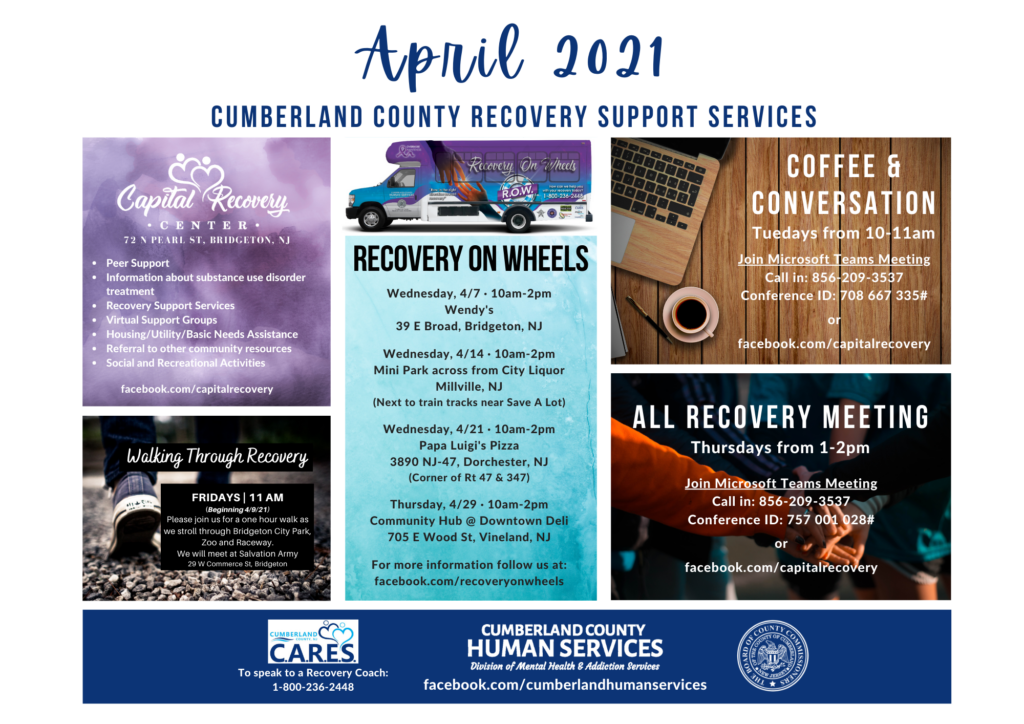
C.A.R.E.S. stands for Compassionate Addiction Recovery Equals Success. C.A.R.E.S. is for those seeking to begin or sustain long-term recovery from an addiction to alcohol or other drugs. The program offers support from peers who have been trained in the skills and knowledge needed to guide, mentor, and support anyone who is working toward recovery from addiction.
To speak to a C.A.R.E.S. Recovery Coach: 1-800-236-2448
Please Show Your Support By Visiting Our Facebook Page Today!
2021 Cumberland County Youth Services Funded Programs and System Partners
Prevention Programs
Delinquent acts may include crimes against persons, crimes against property, drug offenses, and crimes against public order. Delinquency prevention programs seek to redirect youth who are considered at-risk for delinquency or who have committed a delinquent offense from deeper involvement in the juvenile justice system. The Cumberland County Youth Services Commission recognizes the value in funding school-based prevention programs as a cost-effective means of serving a larger and more captive youth audience while saving tax-payer dollars on additional costs of transportation.

 Services include: Transportation from high school locations to Wawa stores in shore communities and return, as well as job coaching services to students during their summer employment. The funding for this program will increase the number of working days, thus allowing the youth employees to work an additional shift during the months of May, June and September where the schedules are limited to weekends only. This expansion will keep the at-risk youth engaged in a productive activity and will reduce the potential for getting involved in delinquent activities.
Services include: Transportation from high school locations to Wawa stores in shore communities and return, as well as job coaching services to students during their summer employment. The funding for this program will increase the number of working days, thus allowing the youth employees to work an additional shift during the months of May, June and September where the schedules are limited to weekends only. This expansion will keep the at-risk youth engaged in a productive activity and will reduce the potential for getting involved in delinquent activities.
Referral Sources: Cumberland Regional, Bridgeton, Millville, and Vineland High Schools
Diversion and Disposition Programs
Diversion is a term used to describe intervention approaches that redirect youths away from formal processing in the juvenile justice system, while still holding them accountable for their actions. Preadjudication diversion programs seek to divert youth who would otherwise have been formally processed in juvenile court.
Non-Incarceration Options for Juveniles
Juvenile court judges often have broad discretion to fashion a sentence or rehabilitation program that fits the needs of the minor. A disposition order may include options other than confinement, including:
- Verbal warning. The sentence for the juvenile can be as simple as a verbal reprimand.
- Fine. The minor may be required to pay a fine to the government or pay compensation to the victim.
- Counseling. Often, judges require juveniles to attend counseling as part of a disposition order.
- Community service. Juveniles may be ordered to work a certain number of hours in service to the local community.
- Electronic monitoring. Juveniles may be required to wear a wrist or ankle bracelet that verifies their location at all times.
- Probation. Judges often order juveniles to enter probation after a delinquency finding. (To learn more about probation, see the “Probation” section, just below.)
In creating a disposition order, juvenile court judges can order any of the above options alone or in combination. For example, a delinquent minor might need to pay a fine, attend counseling, and perform community service as a penalty for one offense.
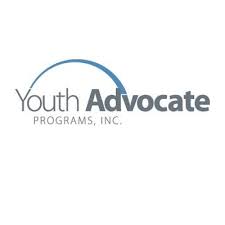 Individual Mentoring Program for Cumberland County youth who are involved with, or at-risk of involvement with, the Family Court system. Services are provided through a consistent one-on-one relationship between a supportive trained Advocate and referred youth. Advocates assist with compliance of Court Orders and/or Probation requirements, if applicable. Services include: Develop and implement and Individual Service Plan to address youth’s immediate needs and specific goals and objectives; facilitate both male and female responsive services and appropriate gender specific linkages available in the community; and cultural and educational activities. Cultural sensitivity, language barriers and special interests of clients are considered when matching advocates with youth.
Individual Mentoring Program for Cumberland County youth who are involved with, or at-risk of involvement with, the Family Court system. Services are provided through a consistent one-on-one relationship between a supportive trained Advocate and referred youth. Advocates assist with compliance of Court Orders and/or Probation requirements, if applicable. Services include: Develop and implement and Individual Service Plan to address youth’s immediate needs and specific goals and objectives; facilitate both male and female responsive services and appropriate gender specific linkages available in the community; and cultural and educational activities. Cultural sensitivity, language barriers and special interests of clients are considered when matching advocates with youth.
Referral Sources for Disposition: Family Court, Juvenile Probation
Referral Sources for Diversion: Family Crisis Intervention Unit (FCIU)/Mobile Response and Stabilization Systems (MRSS), Juvenile Conference Committee (JCC), Intake Service Conference (ISC), Law Enforcement and Schools
In-Home Counseling services provided to Cumberland County youth who are involved with, or are a risk of involvement with, the Family Court System.
Goals include helping families improve family functioning through individual and family counseling; crisis intervention; education advocacy with the school system; linkages with extended family neighbors, and other community resources; and aftercare planning with family and appropriate agencies in order to prevent service gaps. Services include assisting families to negotiate the education system and secure an appropriate education program suited to the individual youth when requested by a referral source. Program provides juvenile anger management training on how to cope with violence; and recognize, understand, and control anger.
Referral Sources for Disposition: Family Court, Juvenile Probation
Referral Sources for Diversion: Family Crisis Intervention Unit (FCIU)/Mobile Response and Stabilization Systems (MRSS), Juvenile Conference Committee (JCC), Intake Service Conference (ISC), Law Enforcement and Schools
Services include:
- Alcohol and Drug Evaluations
- On-site/Expedited evaluation, as needed, for the Family Court or Juvenile Detention Center
- Urine Drug Screens
- Synthetic Drug Testing
- Level I Outpatient Treatment Services
- Education and Support Services
- Substance Abuse Specific Family Counseling
- Transportation
Adolescent transportation needs and locations for services are addressed to help ensure participation.
Referral Source for Disposition: Family Court, Juvenile Probation
Referral Sources for Diversion: Family Crisis Intervention Unit (FCIU)/Mobile Response and Stabilization Systems (MRSS), Juvenile Conference Committee (JCC), Intake Service Conference (ISC), Law Enforcement and Schools.
First Step Clinic Contact Information
Office:
70 W. Broad Street
Bridgeton, NJ 08302
Phone: (856) 451-3727
Fax: (856) 455-9706
Office Hours: 8:30 AM – 4:30 PM, Monday ~ Friday All Other Hours By Appointment Only
Melissa Niles MS, LPC, LCADC, SAP, Alcohol and Drug Abuse Services Director
Phone: (856) 391-1638
Cognitive Skills training in order to teach a small group (10-15) new life skills in an effort to provide them with alternative methods and options to deal with their anger, frustration, and perceived lack of choices. Program services address negative peer influence, anger management, conflict resolution, disruptive school behavior, truancy, personality type assessment, healthy boundaries, substance abuse, gang involvement, communication skills and cognitive processes.
Program elements include meals for participants when and if the program is conducted during lunch or dinner time; team building exercises; and Juvenile Probation involvement/participation in program services. Incentives and a recognition ceremony for youth who successfully complete the program are included in the project.
Referral Source: Family Court, Juvenile Probation
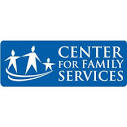 Sex Offender specific services to court involved youth who have been adjudicated delinquent of a sexual offense by the Juvenile Justice System. Services to include:
Sex Offender specific services to court involved youth who have been adjudicated delinquent of a sexual offense by the Juvenile Justice System. Services to include:
- Forensic Sex Offender Evaluations – Evaluate and diagnose referred clients to establish perpetrator’s sexual abuse/assault history. Evaluation reports include recommendations for service planning. Evaluations are completed by, minimally, a Licensed Clinical Social Worker (LCSW) with experience evaluating juvenile sex offenders. Clinical supervision and review of sex offender evaluations for juvenile sex offenders are provided by, minimally, a Licensed Psychologist with experience working with juvenile sex offenders.
- Individual Sex Offender Therapy – Therapy will include an Individual Service Plan to address the specific emotional, physical and social needs of the youth sex offender in order to reduce the likelihood of recidivism, delinquency and other criminal behaviors. Service includes monthly reporting to referring agency (usually Juvenile Probation), and a Discharge Summary / After-Care and Safety Plan. Therapy is provided by, minimally, a Licensed Clinical Social Worker (LSCW) experienced with juvenile sex offenders.
- Referral Sources: Family Court, Juvenile Probation
The diversion Youth Mentoring Program has been strategically designed to serve 20 youth ages 12-19 who are at risk of becoming involved in the Cumberland County Family Court or Juvenile Justice System. By providing a consistent one-on-one relationship with a trained, credible community worker with lived experience, youth can receive relevant assistance and support to remain compliant with court orders and/or probation requirements. Additionally, the program will be advertised to local middle and high school guidance counselors in order to engage at-risk students who exhibit consistent negative behaviors, i.e. repeated suspensions, fighting in school, truancy, blatant gang involvement, UAG, and/or have been involved in domestic violence.
Referral sources include Cumberland County youth, male and female, ages 12-19 who reside in Cumberland County and are involved in the Diversion stage of the Juvenile Justice System and are at risk of further involvement in the Family Court System. Referral sources include: the FCIU/MRSS, Juvenile Conference Committee, Court Intake, Law Enforcement, Schools and School-Based Youth Services for Diversion category services and Juvenile Probation and Family Court for Disposition category services. Youth may be self-referred or referred by family and will not be denied mentoring services upon approval of the YSAC administrator.
Detention Alternative & Re-Entry Programs
Juvenile reentry or aftercare- has been defined as the reintegrative services that prepare youths in out-of-home placements for their eventual return home by establishing the necessary collaboration with the community and its resources to ensure the delivery of needed services and
supervision.
 “Detention” is defined as the temporary care of juveniles in physically restricting facilities pending court disposition. An objective of detention is to provide secure custody for those juveniles who are deemed a threat to the physical safety of the community and/or whose confinement is necessary to ensure their presence at their next court hearing.
“Detention” is defined as the temporary care of juveniles in physically restricting facilities pending court disposition. An objective of detention is to provide secure custody for those juveniles who are deemed a threat to the physical safety of the community and/or whose confinement is necessary to ensure their presence at their next court hearing.
Detention Alternative Programs provide supervision to juveniles who would otherwise be placed in a secure detention facility while awaiting his/her adjudicatory hearing, expanding the array of pre-adjudication and pre-disposition placement options available to the judiciary.
The court will have the option to provide an alternative to incarceration on pre-adjudicated/pre-disposition matters for juveniles who are charged with a delinquent offense.
Services to minimally include: frequent, random face-to-face contact with juveniles and their families, and monitoring of school and/or work attendance. Although supervision may include phone contact via a landline telephone, a landline should not supersede admission to the program. Reliance on a landline should not create a barrier to admission to the program
Service provider should respond to requests from the Court for program intake on a twenty-four (24) hour basis, thus allowing for juvenile’s release to family/parent/guardian. A formal program intake process should be completed within 24 hours of release to family.
Non-compliance with a home detention alternative program may result in the youth being placed in the Juvenile Detention Center. A weekly progress report to Family Court is requested and program infractions should be reported as soon as possible.
Referral Source: Family Court
Juvenile Detention Alternative Initiative 2020 Programs
The goal of this program is to reduce barriers which often interfere with juveniles’ compliance with their terms of probation, resulting in Failure to Appear (FTA) and Violation of Probation (VOP). FTAs and VOPs lead to bench warrants, which usually lands a juvenile in the Juvenile Detention Center. SODAT, in partnership with Cumberland Juvenile Probation, provides opportunities for probationers and their families to ensure their understanding and ability to comply with the terms of their probations.
SODAT will partner with Cumberland Juvenile Probation to provide a Probation Orientation every other month, which will give the juvenile and family the information needed to help them successfully complete their probation term. Dinner will be provided for probationers, their families and probation staff at each orientation.
In addition to the Probation Orientation, SODAT will coordinate one educational/cultural Enrichment Trip per month. Juvenile Probation Officers and SODAT staff accompany juveniles on the trips. These trips are offered to probationers at certain benchmarks during their probationary term. Meals are provided for juveniles, probation staff and SODAT staff. An Enrichment trip, including meal times, promotes positive relationships between the Probation Officers and Juveniles.
Life Skills Lessons are offered each month. Dinner will be provided at each Life Skills session. Youth and their families will be encouraged to attend. Various topics, such as Daily Living Skills, Self-Care/Hygiene Skills, Relationships/Communication Skills, Housing/Money Management Skills, Career/Education Planning, will be offered to juveniles and their families. Speakers may be invited to present for a topic and/or trips to shop for items pertaining to the lesson may be provided.
Because transportation continues to be a huge barrier in Cumberland County, assistance is provided for youth and their families who have charges pending in the Family Court, and probationers and their families for court appearances, hearings or appointments, court ordered evaluations, service or treatment appointments, appointments with the Public Defender, Probation reporting, probation orientation sessions, and other appointments relative to the juvenile’s charges or conditions of probation supervision. Bus passes may be issued to the probationers; however, other modes of transportation may be arranged if public transportation is not available. Transportation will also be provided for youth participating in community-based healthy/educational incentives as described.
In addition to providing bus passes and/or taxi fare, SODAT will utilize an agency-owned van to make transportation easier for youth and their families who are not on a public transportation route (i.e., Commercial Township, Lawrence Township, Fairfield Township, etc.).
Referral Source: Juvenile Probation
Resources You Can Actually Use
At GLSEN, we want every student, in every school, to be valued and treated with respect, regardless of their sexual orientation, gender identity or gender expression. We believe that all students deserve a safe and inclusive school environment where they can learn and grow. Please click the link above to visit the GLSEN Southern New Jersey page for more information.
By clicking the link above, families can find specific recreational activities, health providers, support groups, and events searchable in your area. If you are a resident of Cumberland, Gloucester, and Salem Counties, please visit the CGS Family Partnership website for support services in your area.
Aunt Bertha is a social services search tool that allows health care providers, social workers and residents to more easily find the services available right in their own communities. The highly specific search tool allows people to search based on eligibility criteria such as age and income. The tool also lists up-to-date hours, contact information and other resources on a website that’s easy to navigate. Read More Here
To work together with non-profits, churches, businesses and other community organizations to combat community deterioration and transform lives of individuals and families in South Jersey by meeting their housing, physical, and spiritual needs, and strengthening their family units, all within the meaning of Section 501(c)(3) of the Internal Revenue Code of 1986, as amended (the “Code”).
Promoting Positive Youth Development Throughout Cumberland County.
Unidos para la Familia’s mission is to strengthen immigrant, working-class families by providing training and support to parents to promote child well-being and stronger family units through financial stability, improved resident status, and the development of community leaders.
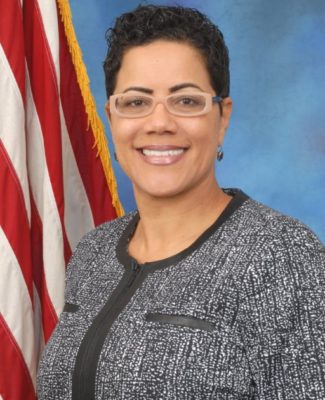
Prosecutor Jennifer Webb-McRae
Click above to visit the new and improved Cumberland County Prosecutor’s Office website. We are proud to launch our redesigned website that is intended to keep visitors informed, educated and safe. Take a moment to explore the various sections of the site. It is designed to educate you about our mission and the function of the Cumberland County Prosecutor’s Office. Come back often and soon to see new information about the important work we do to prosecute those who commit crimes within the County and to help our citizens make positive, healthy choices.
